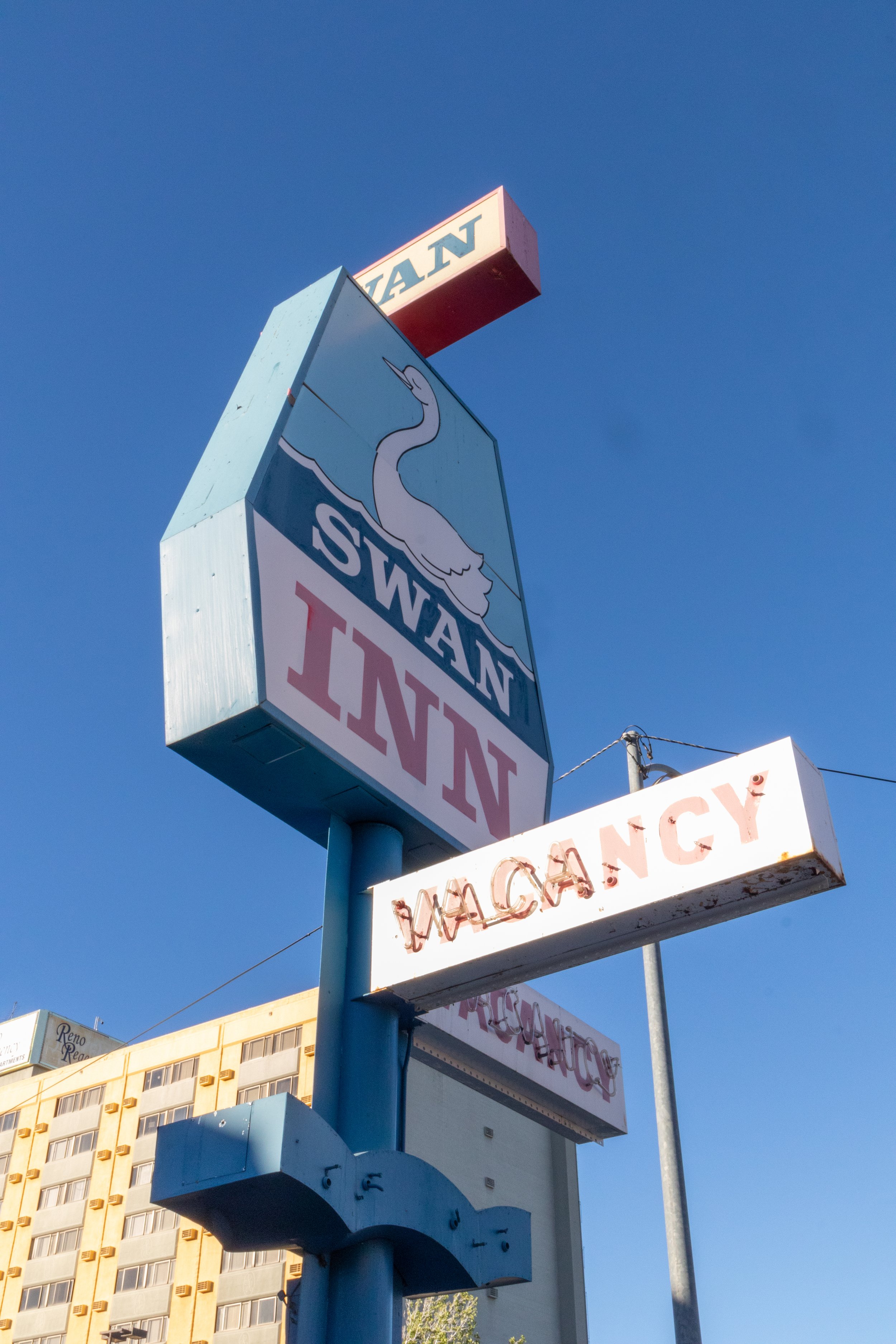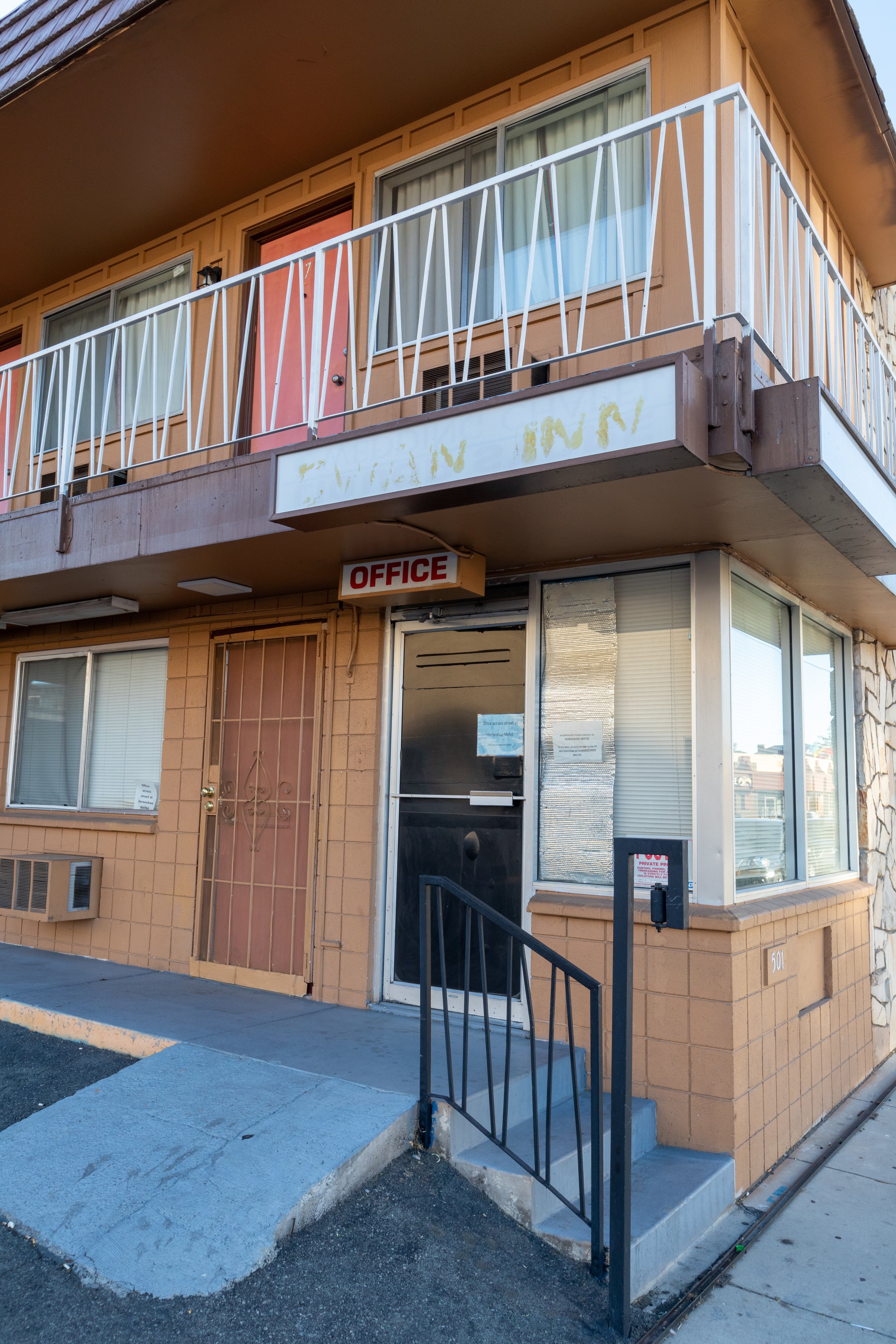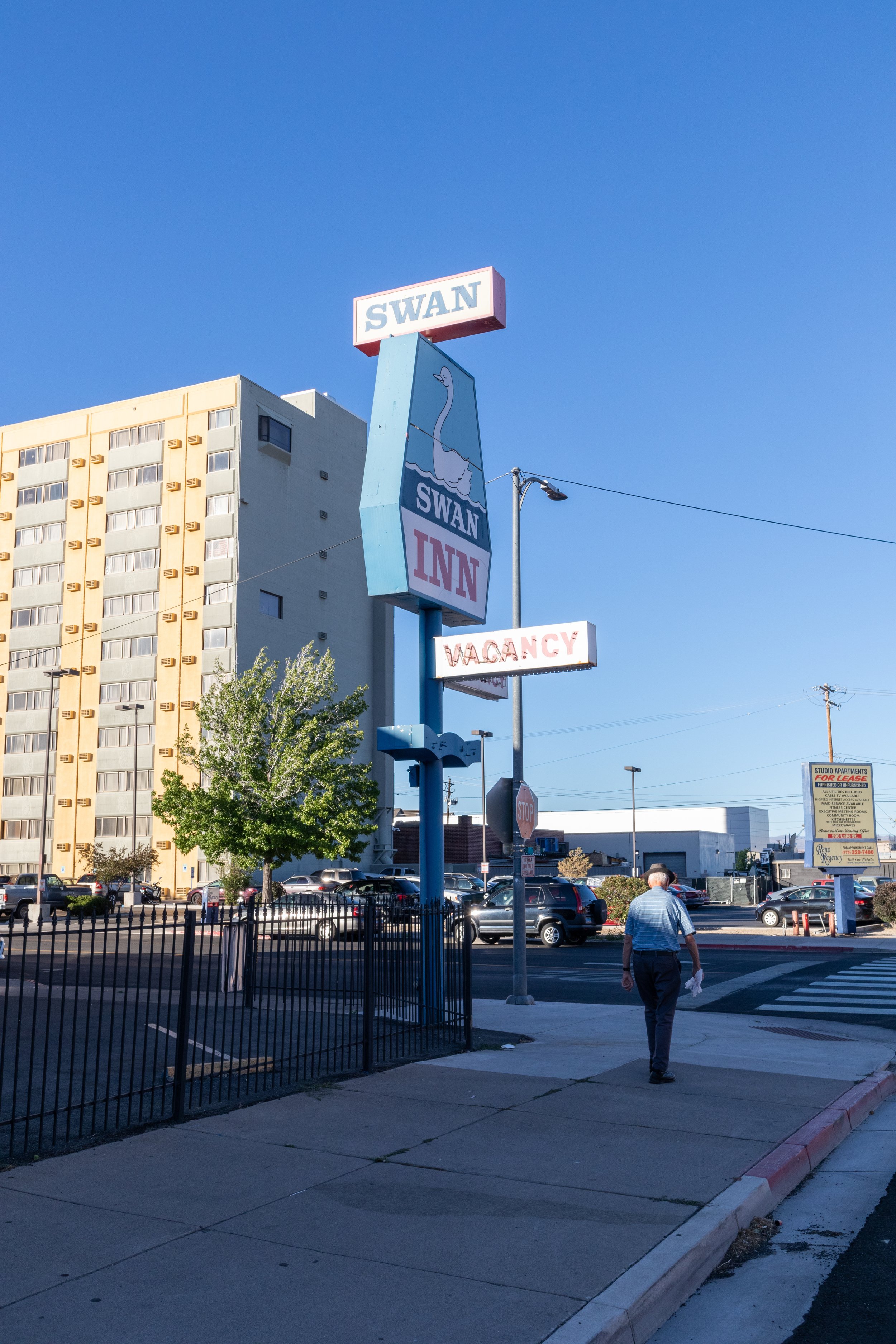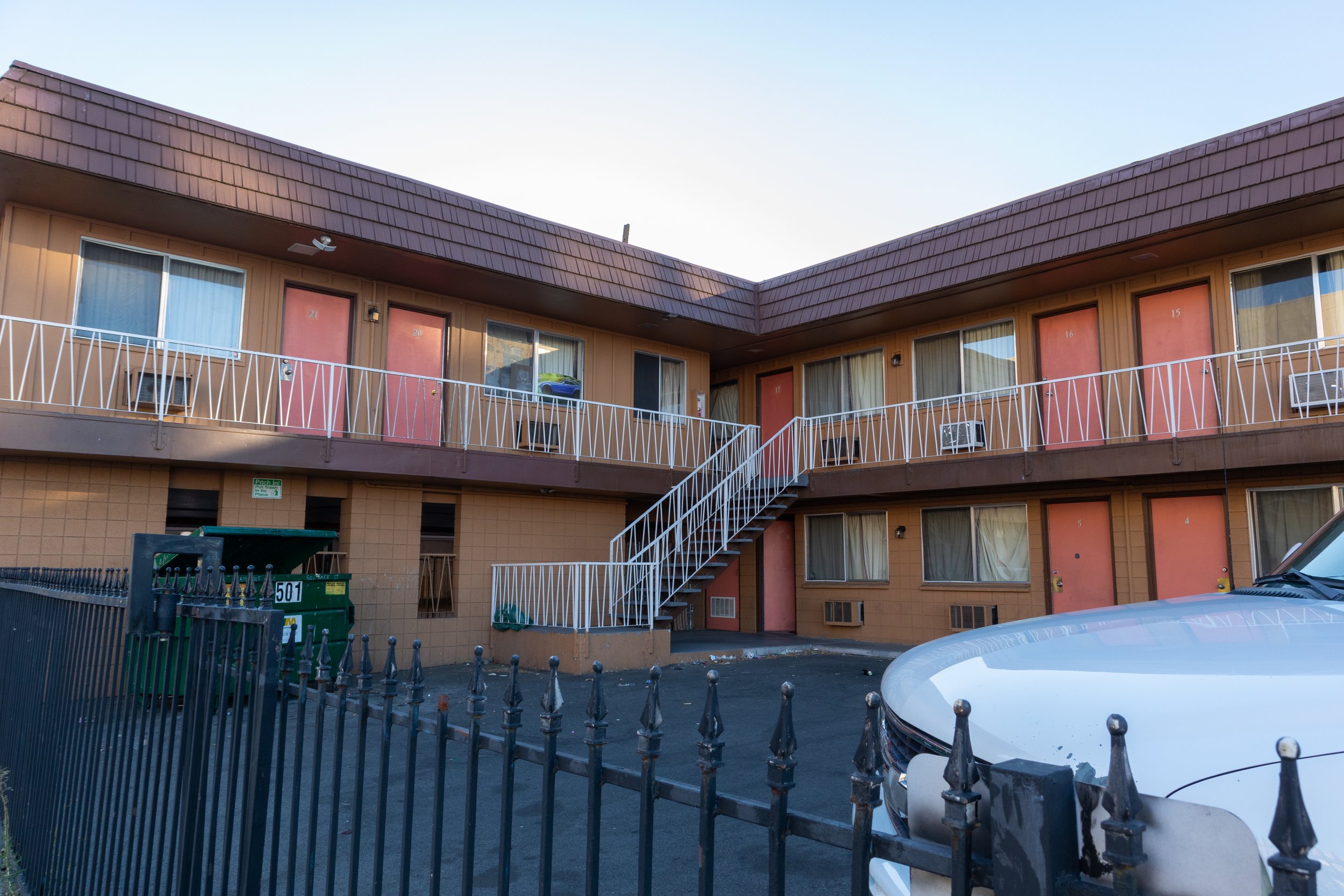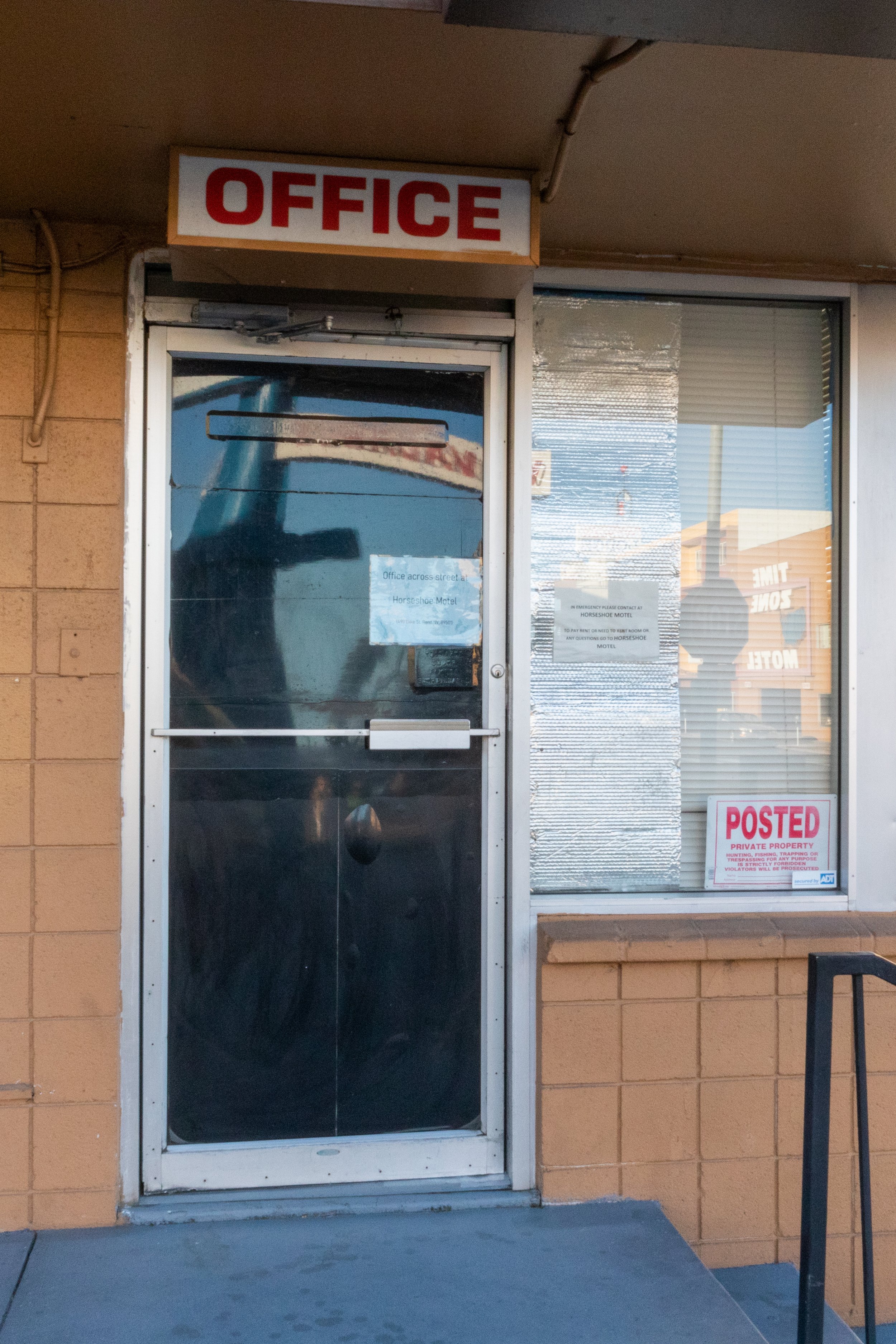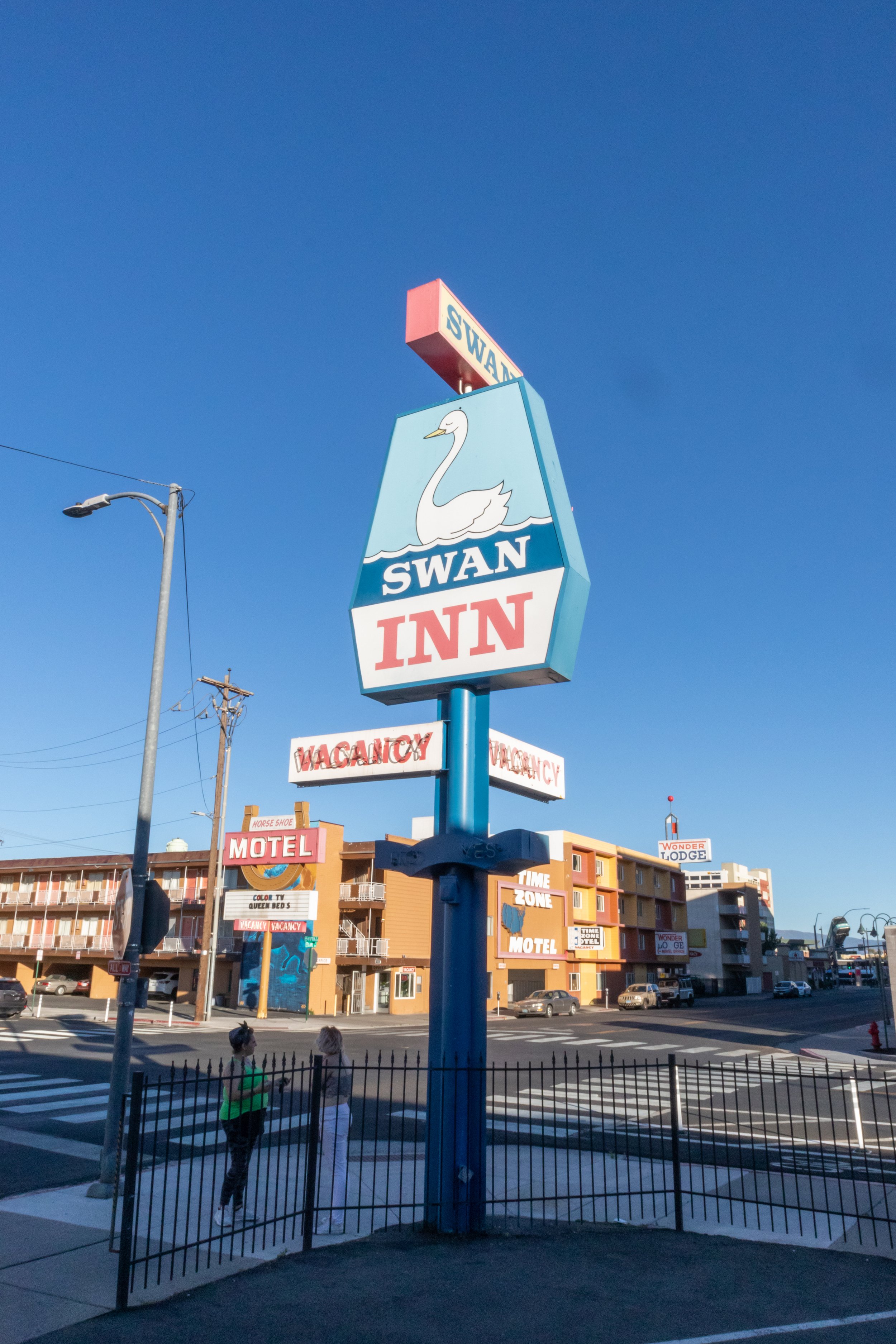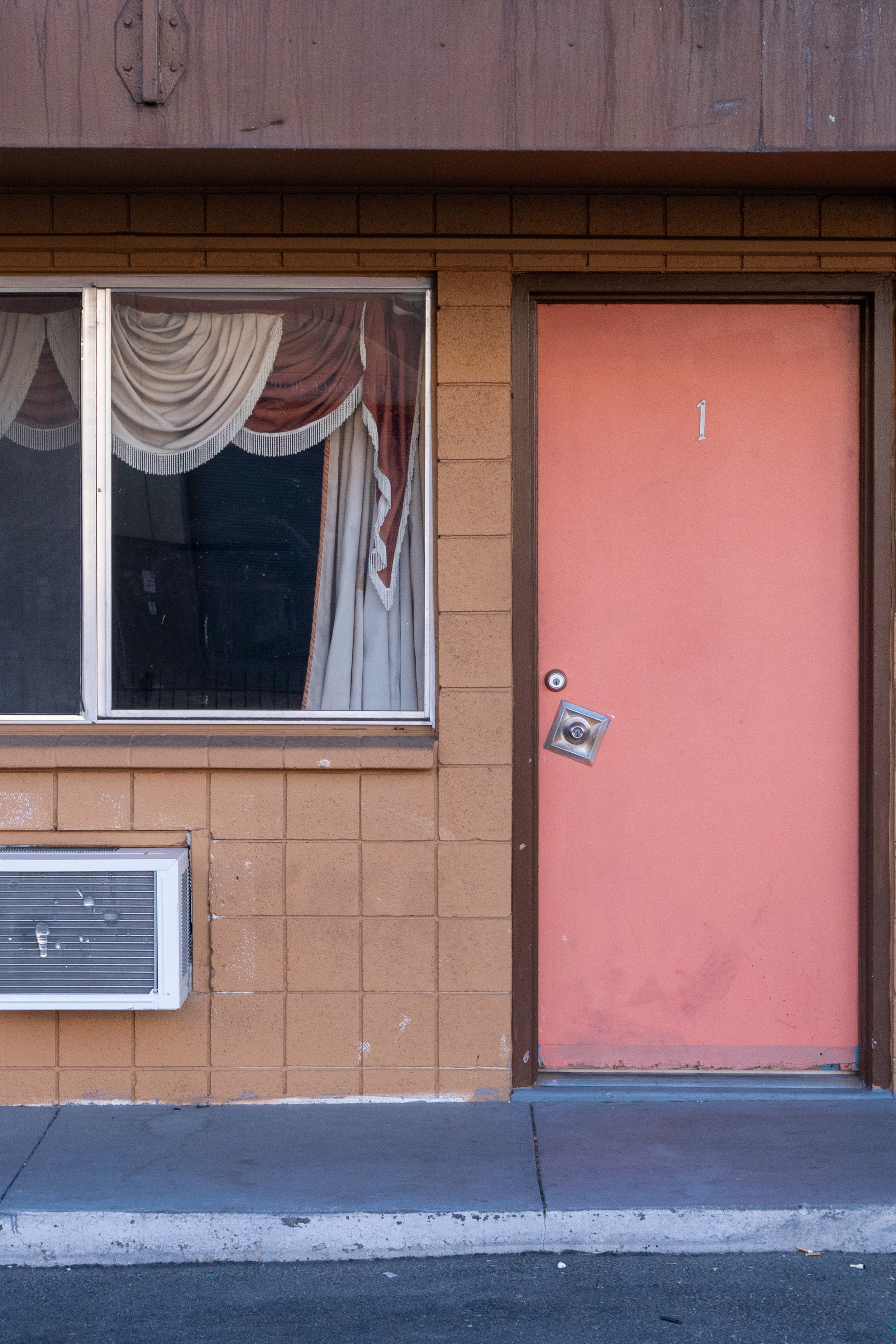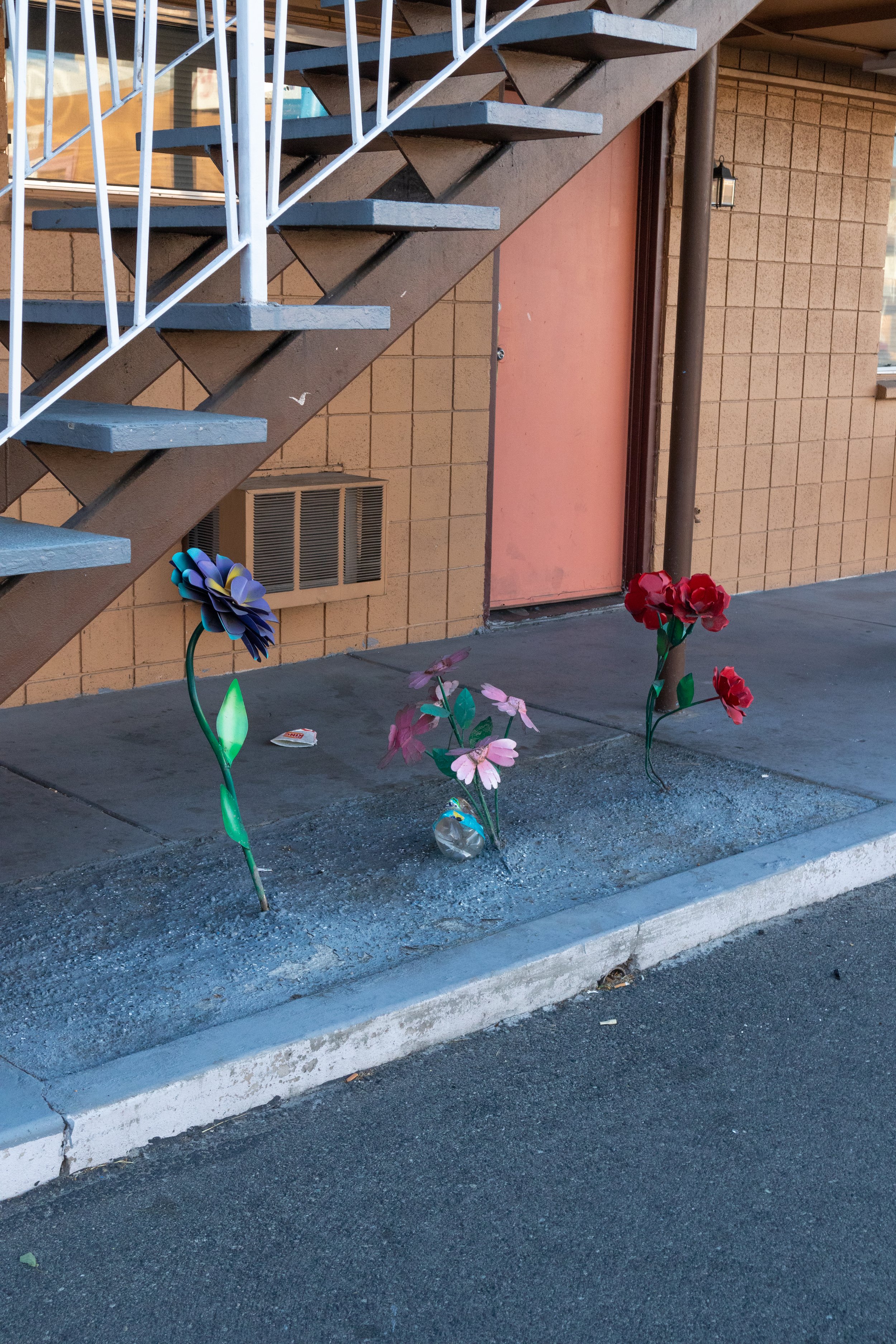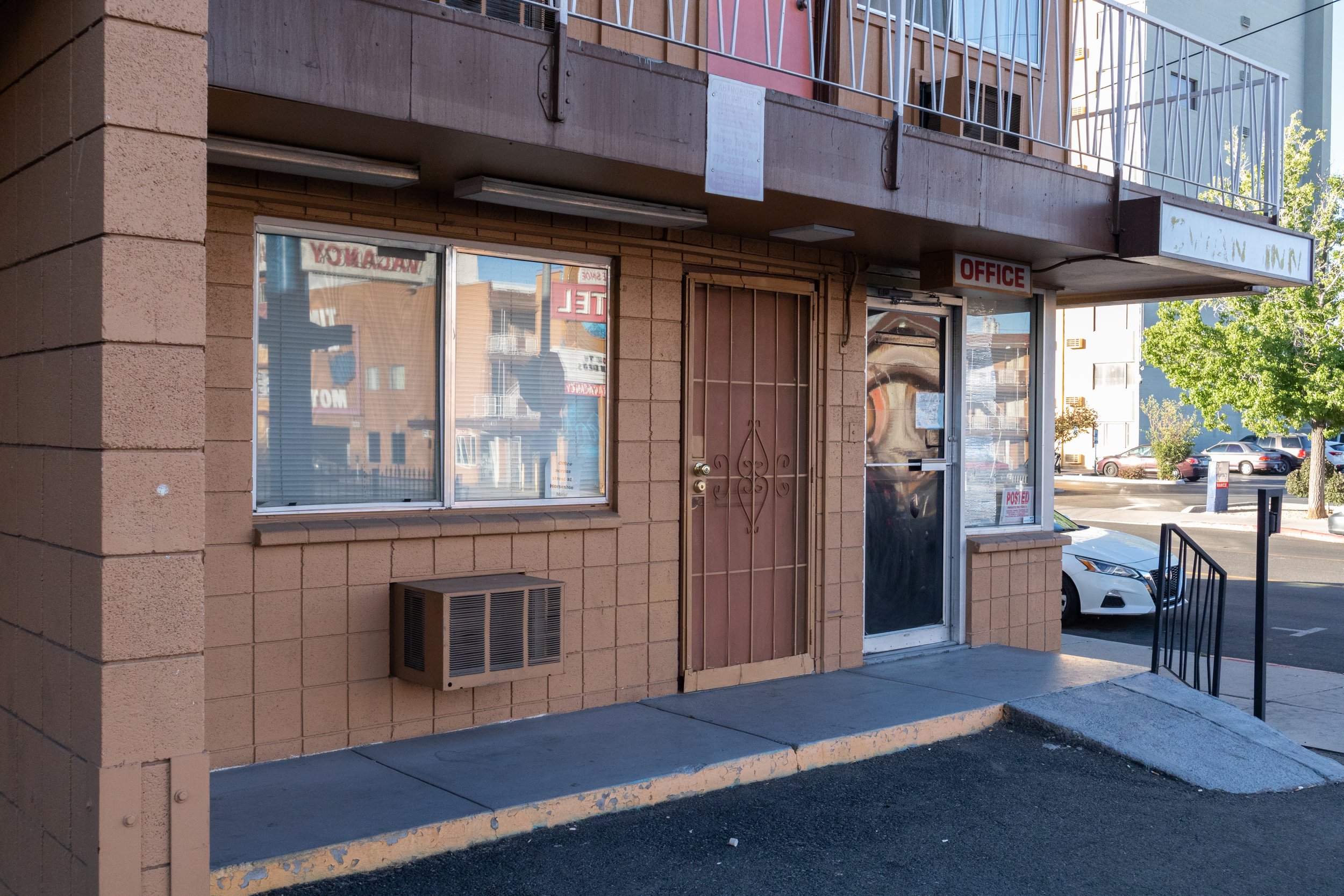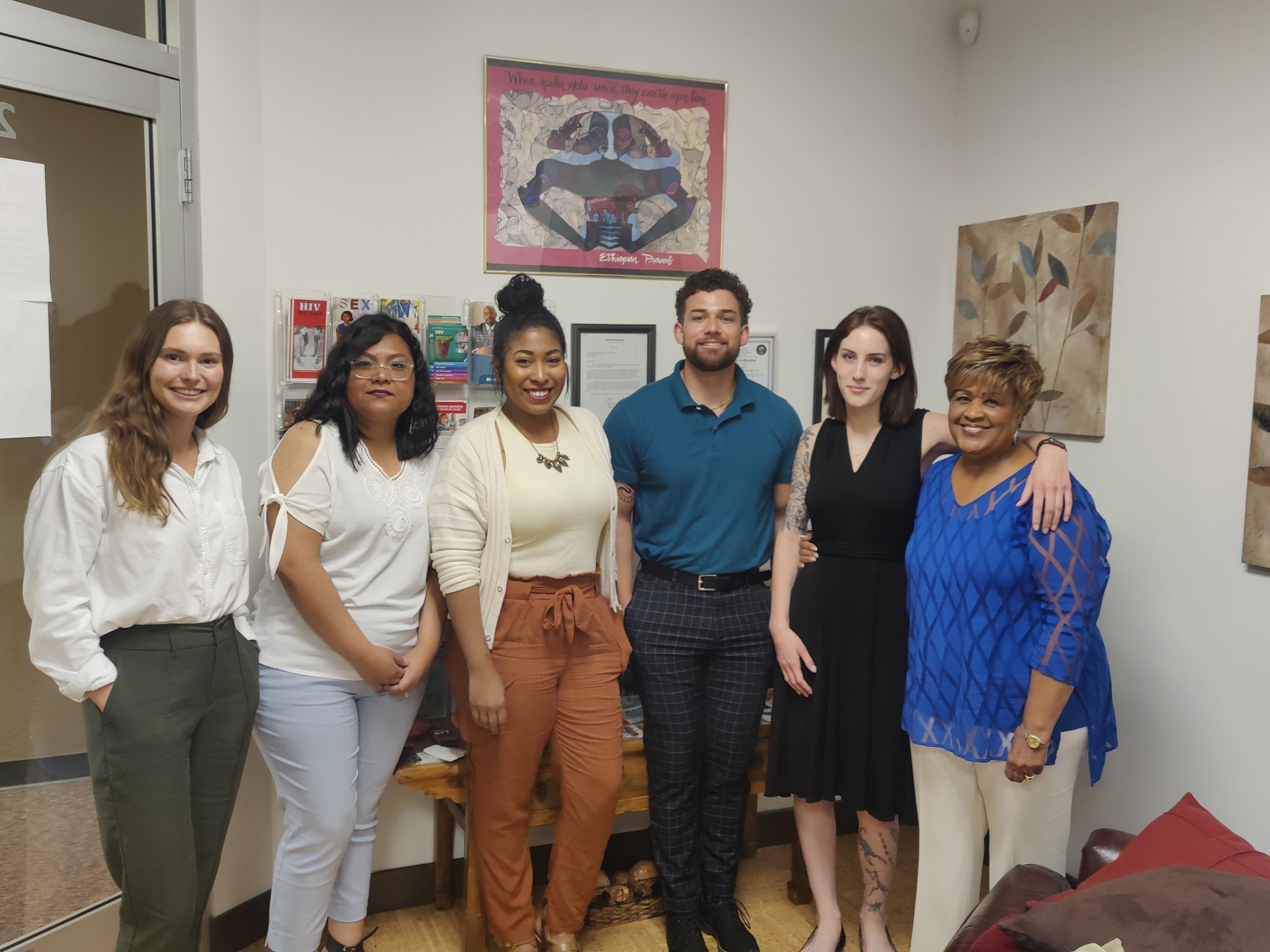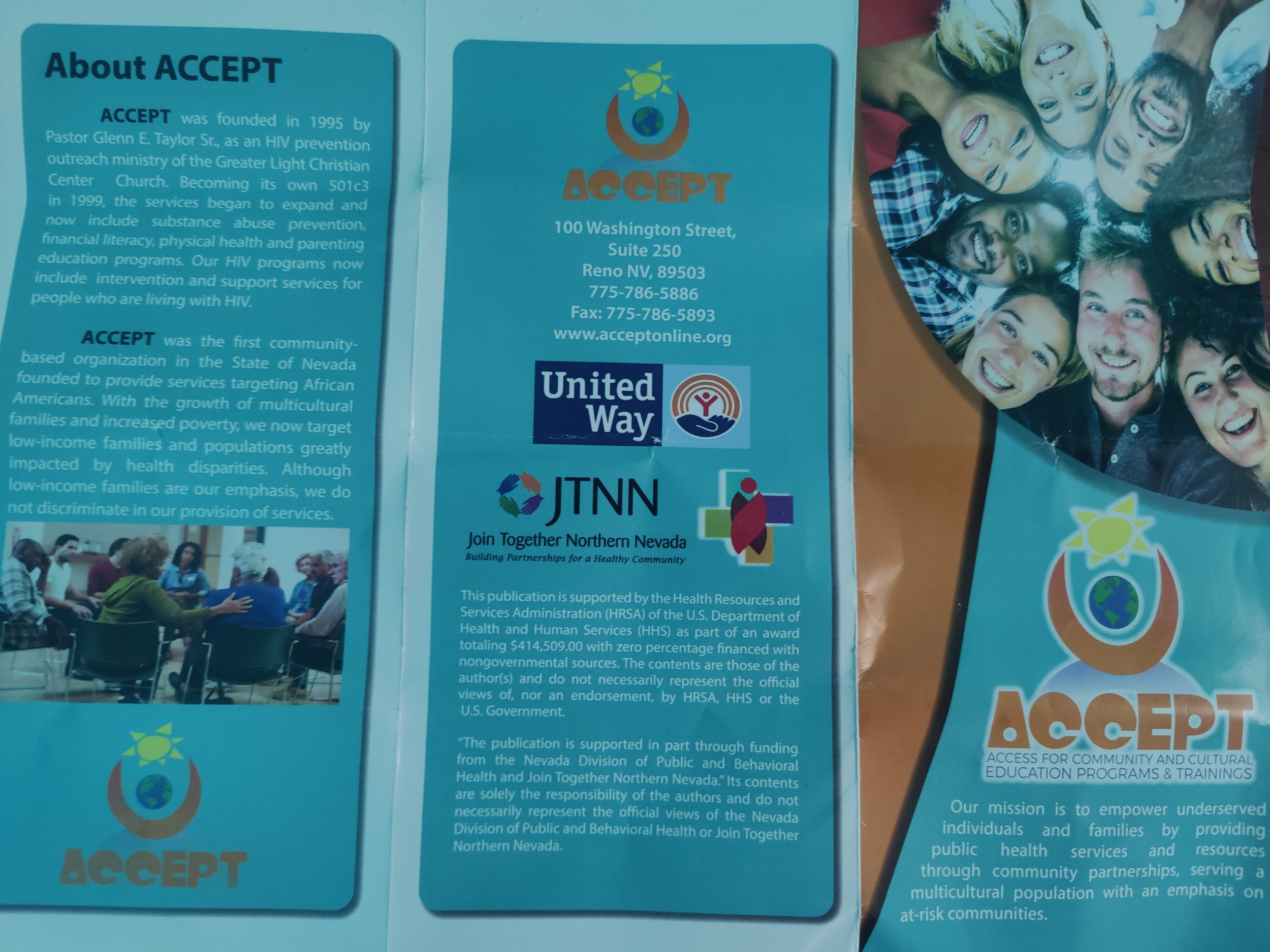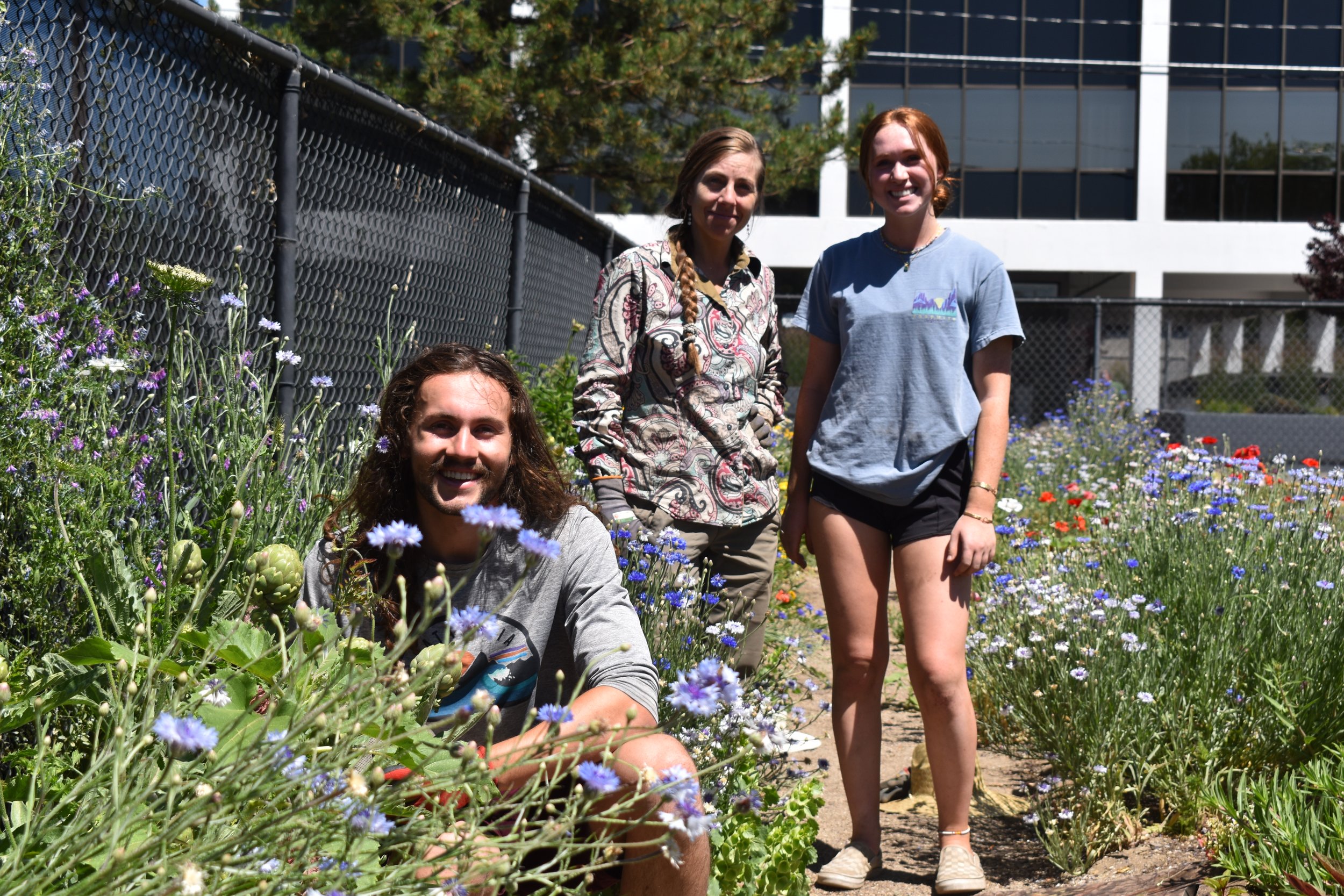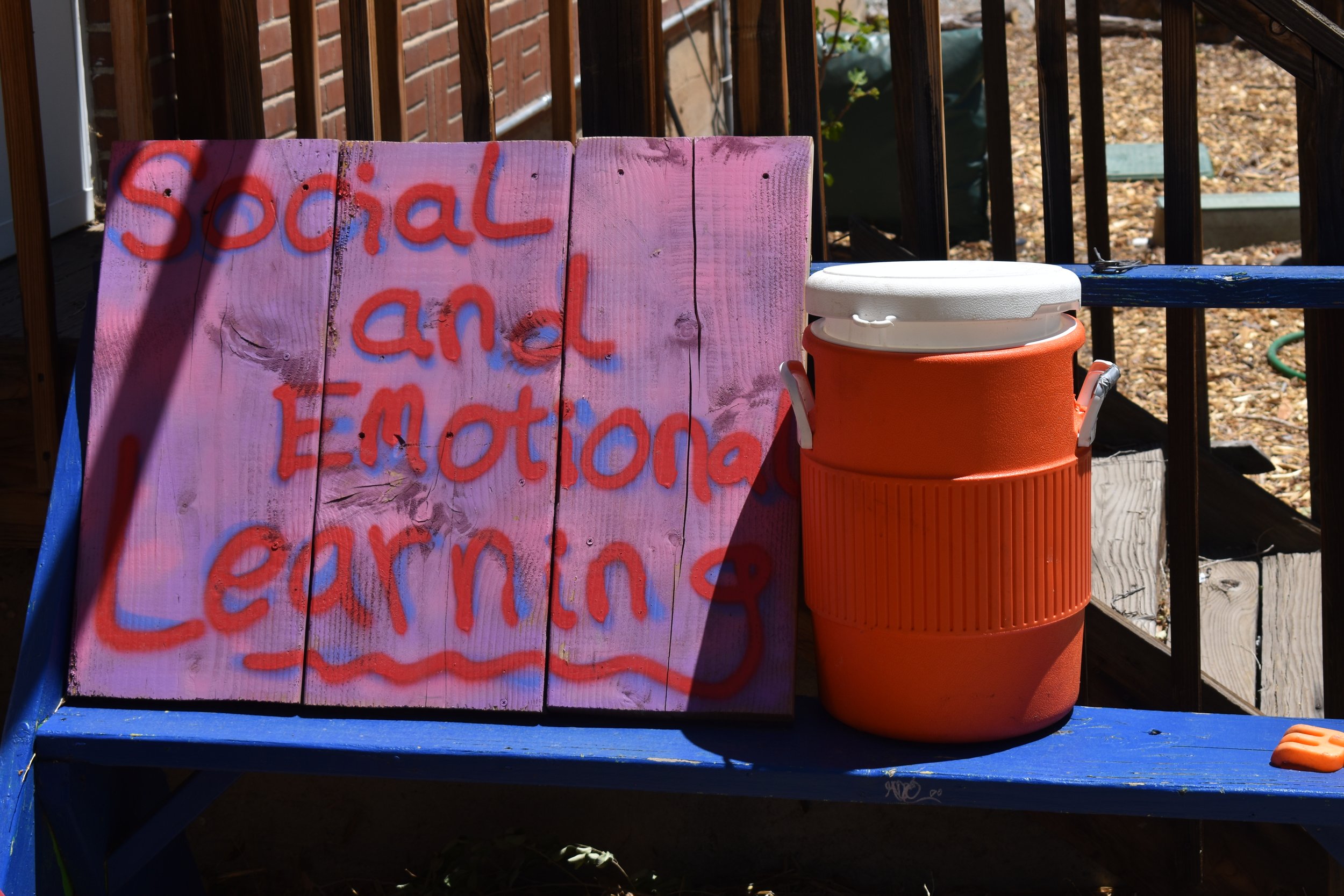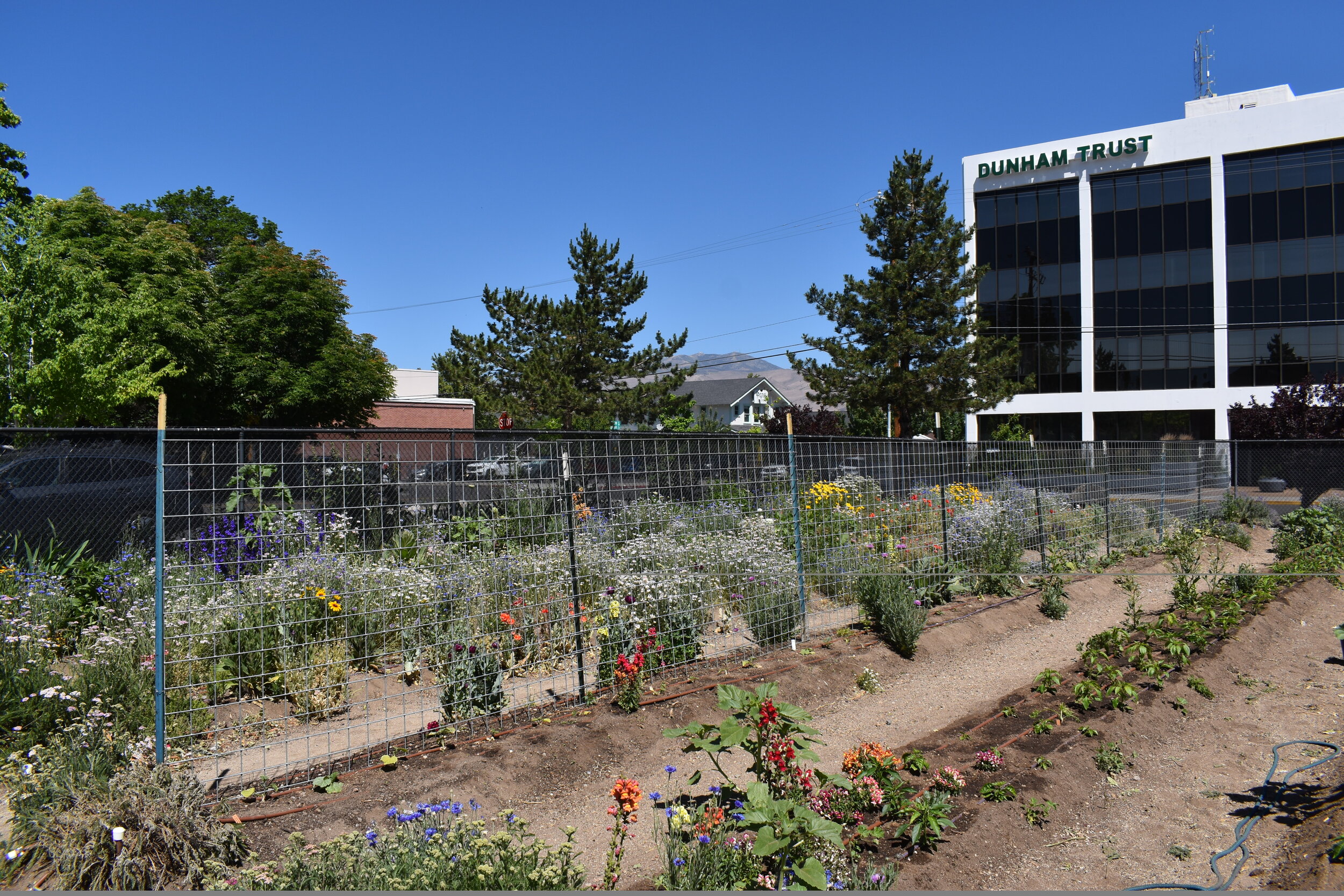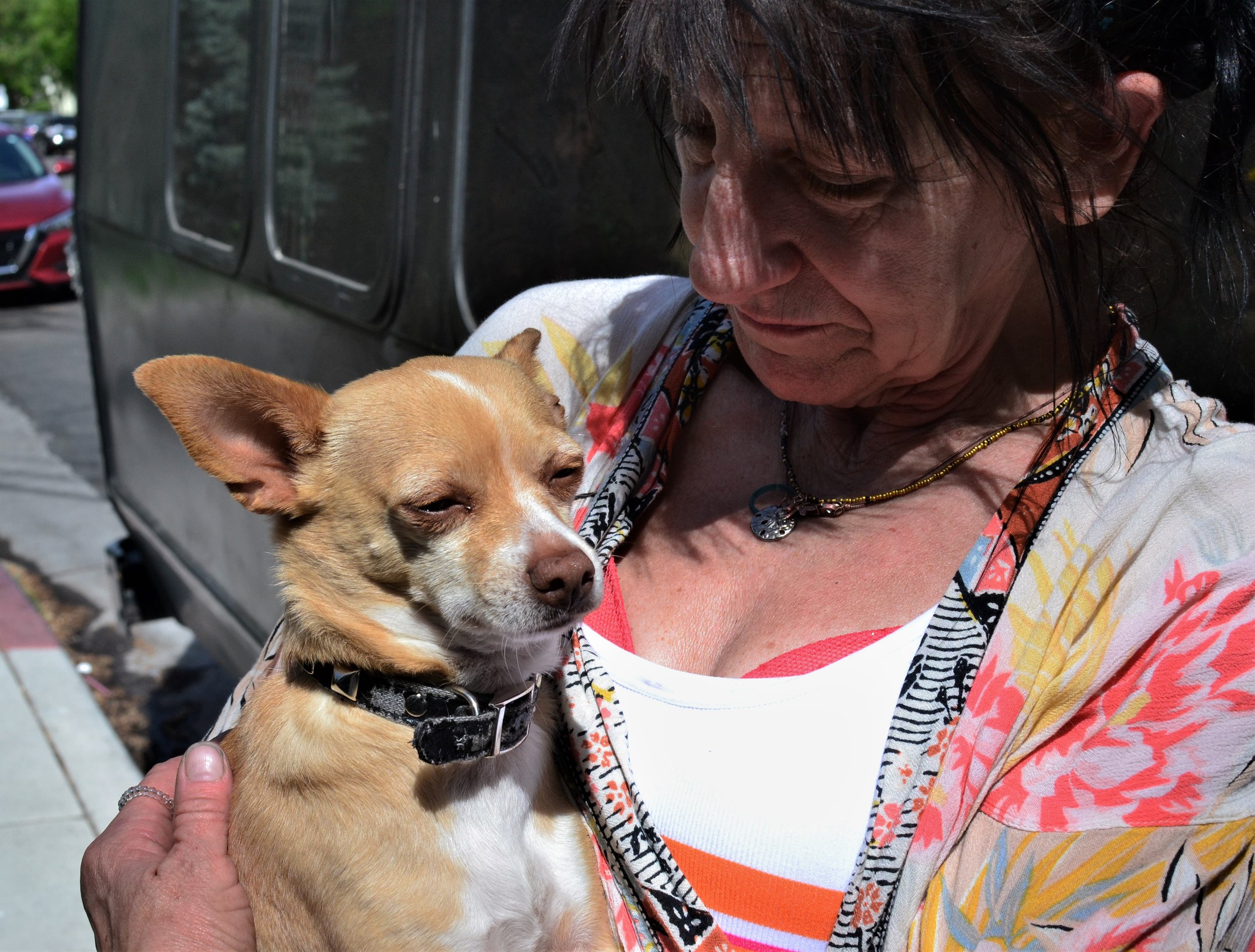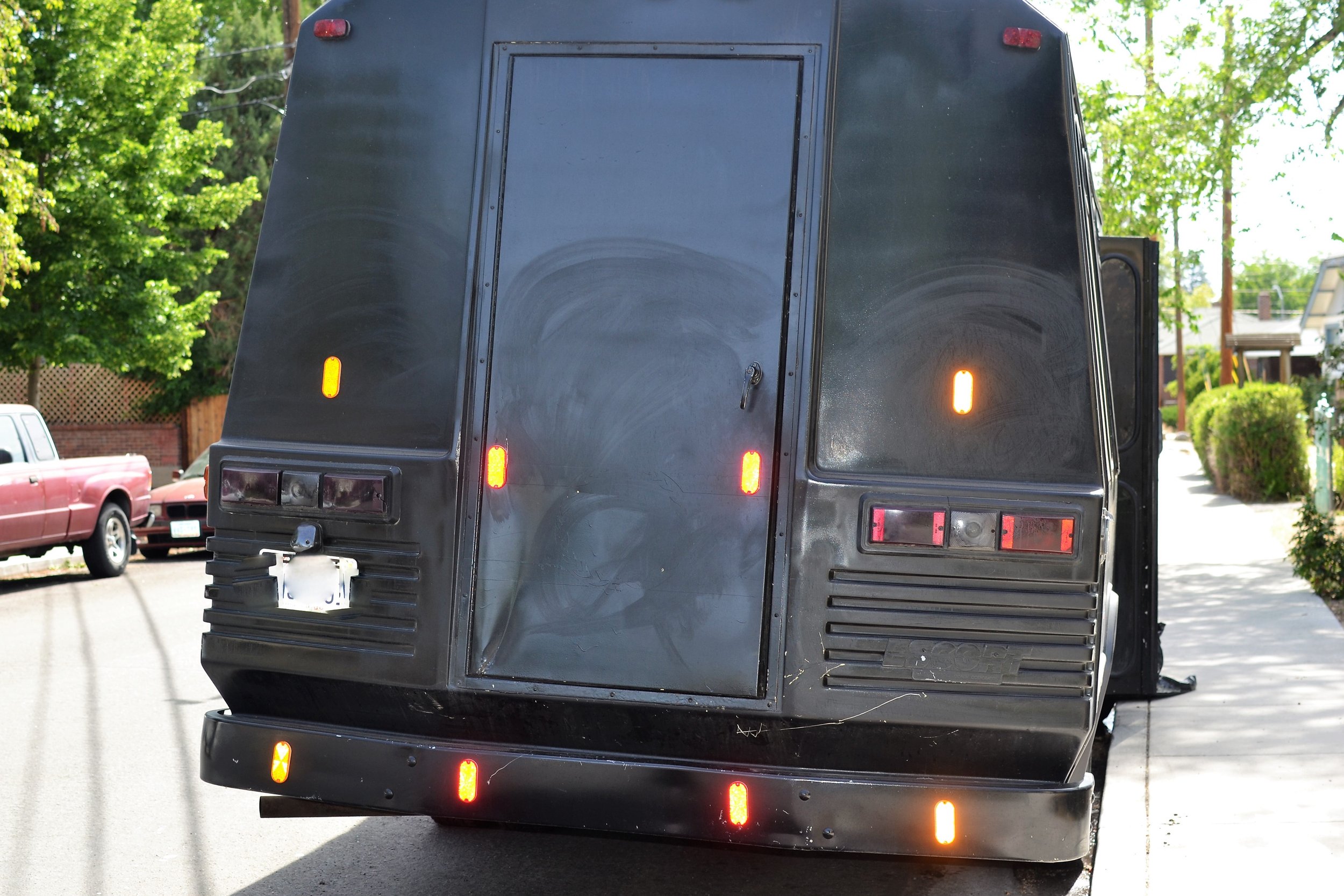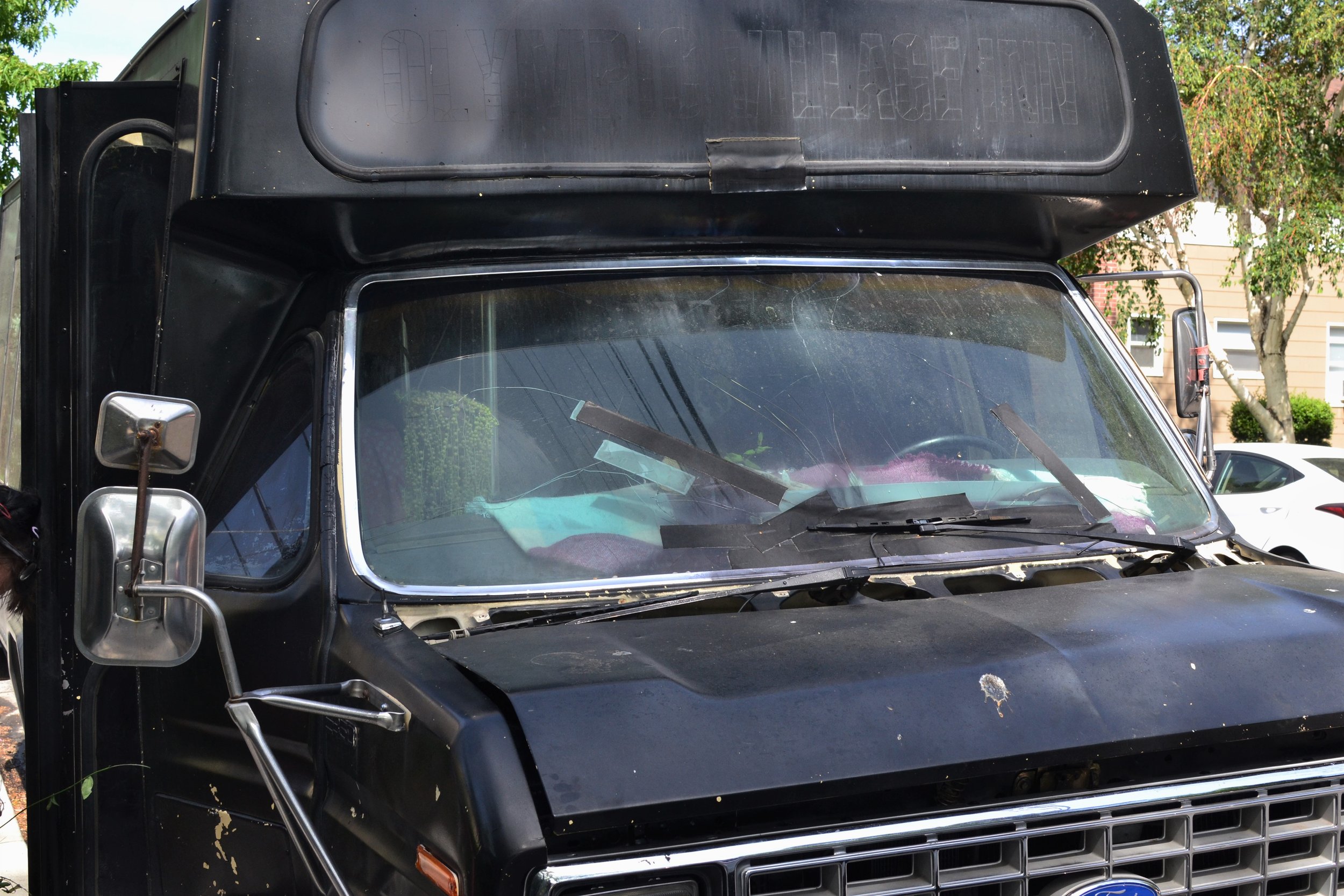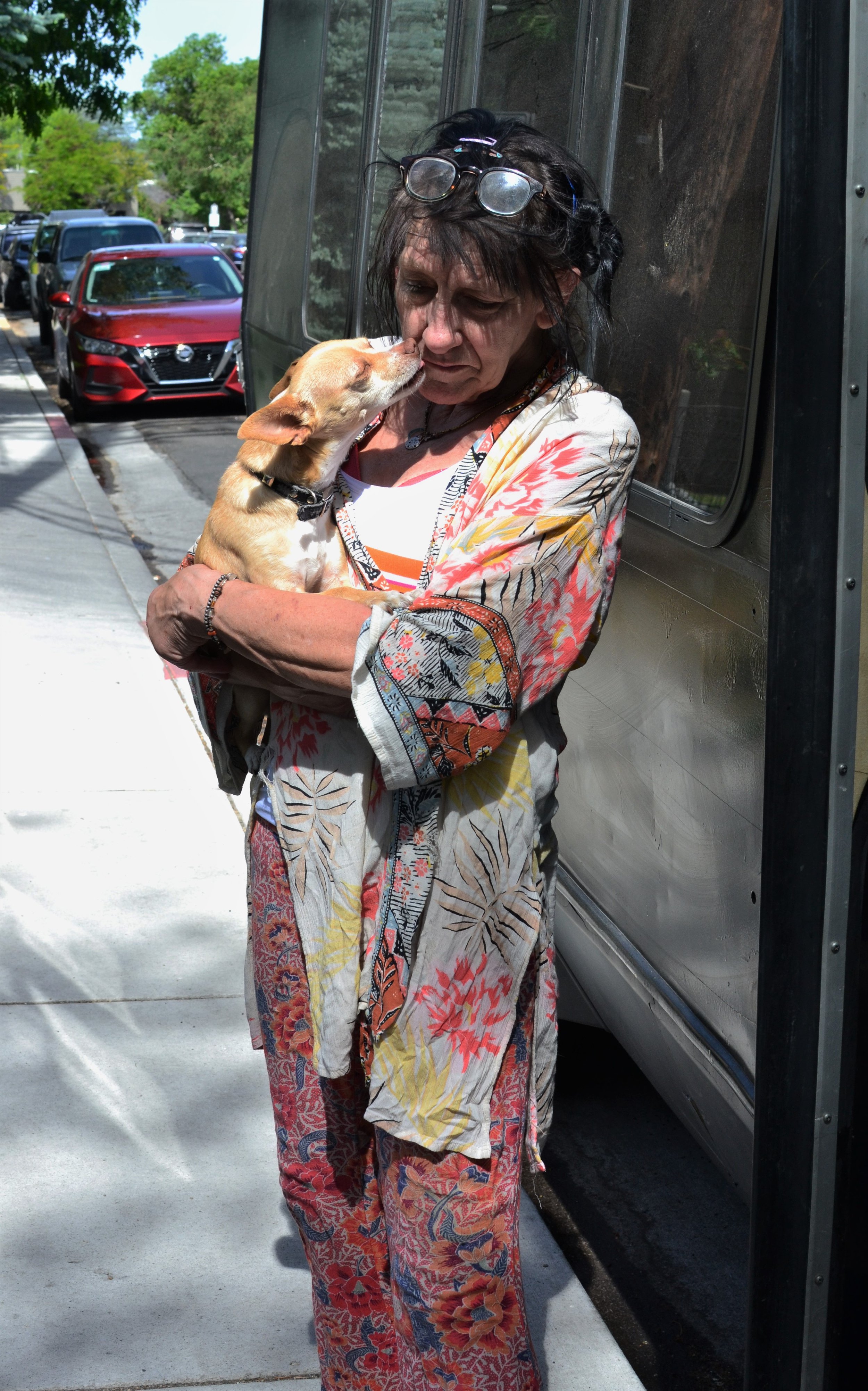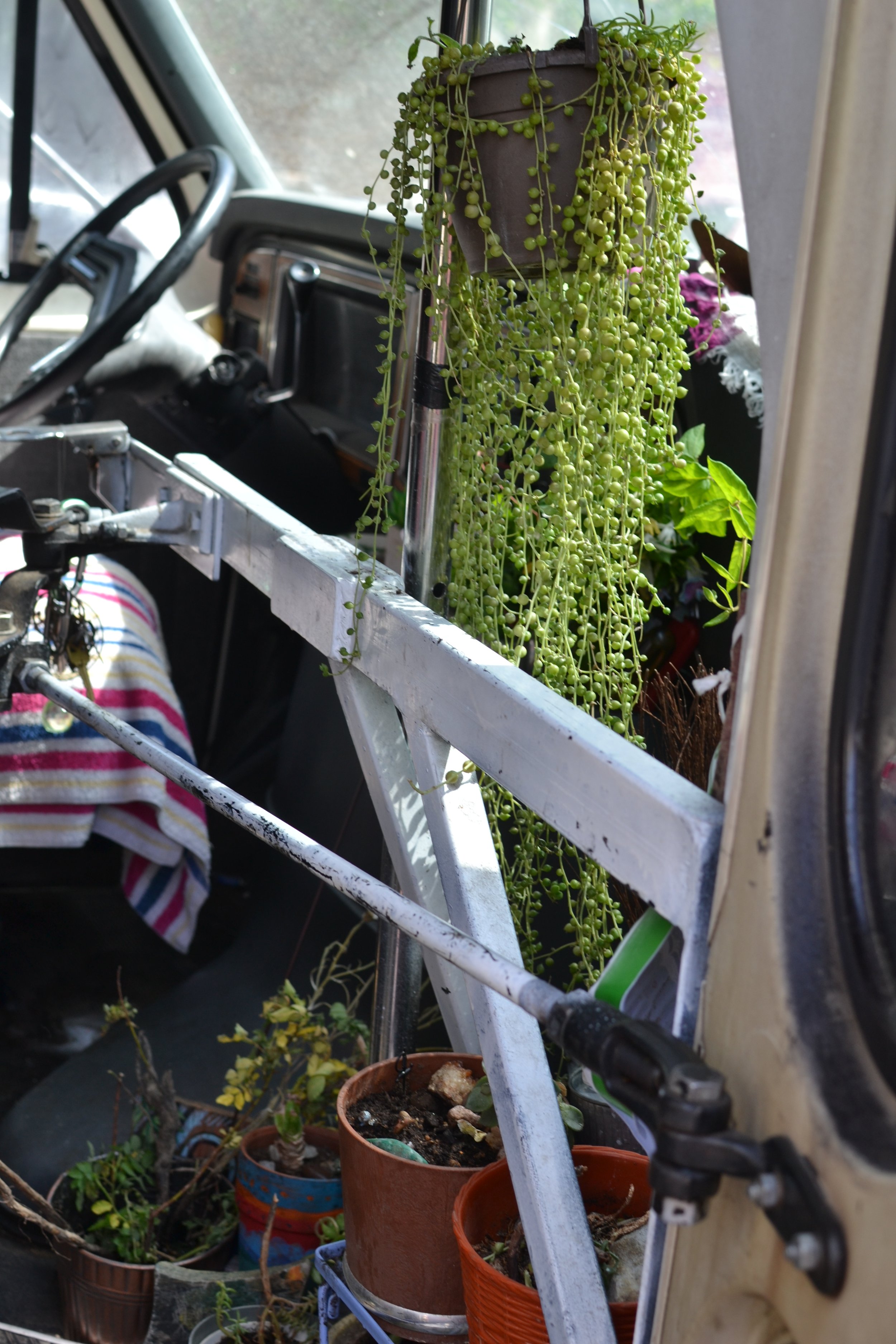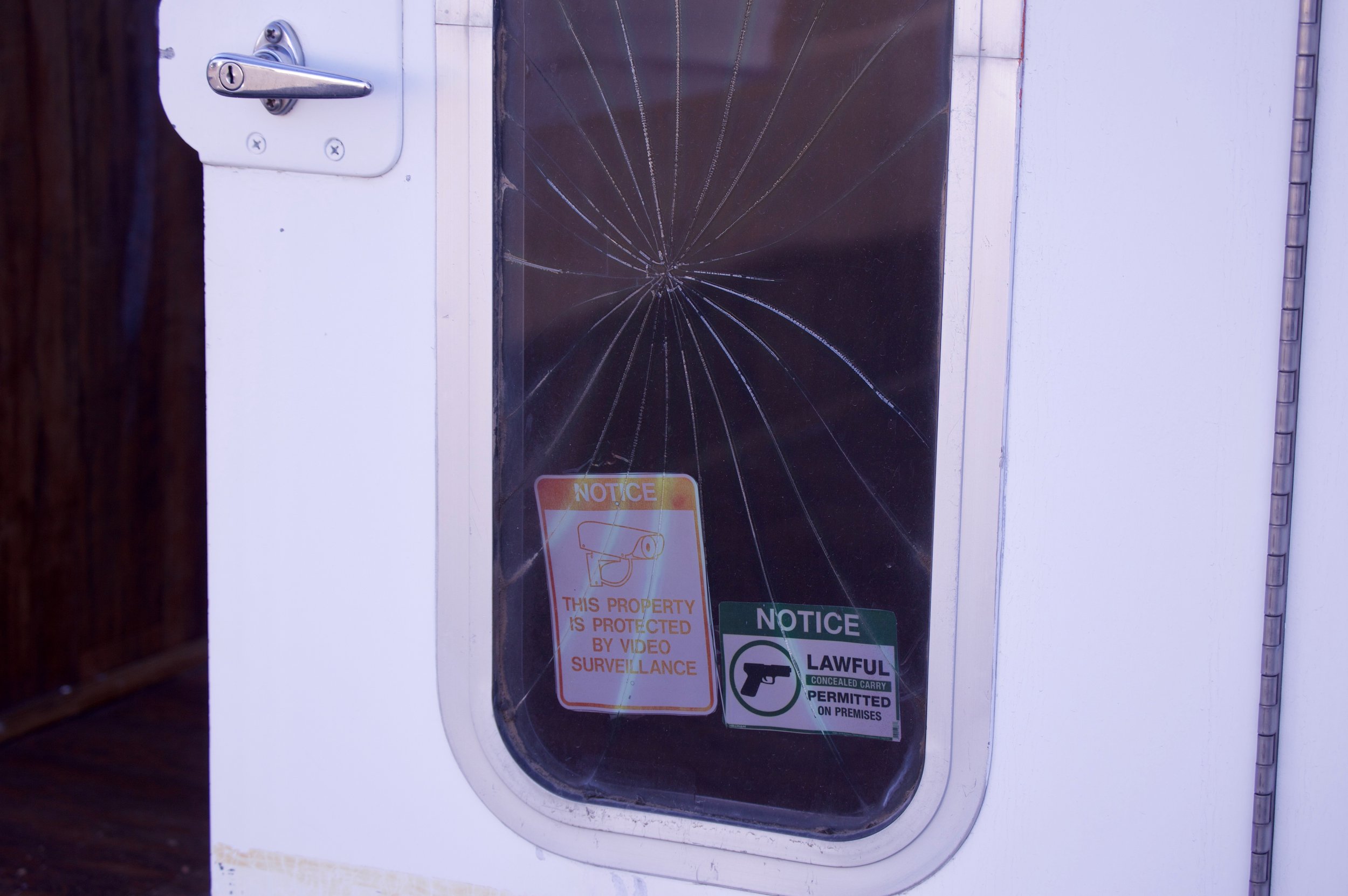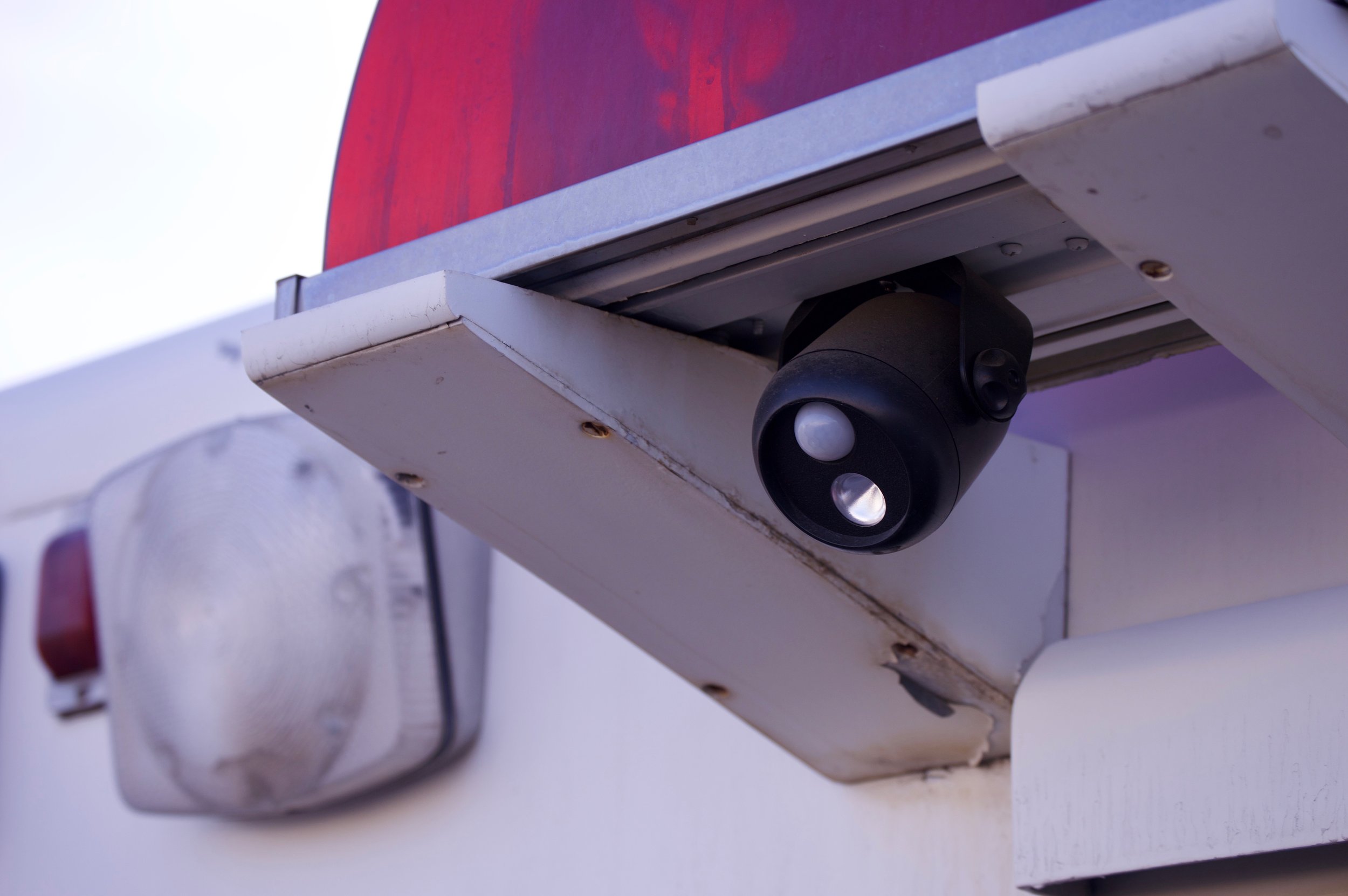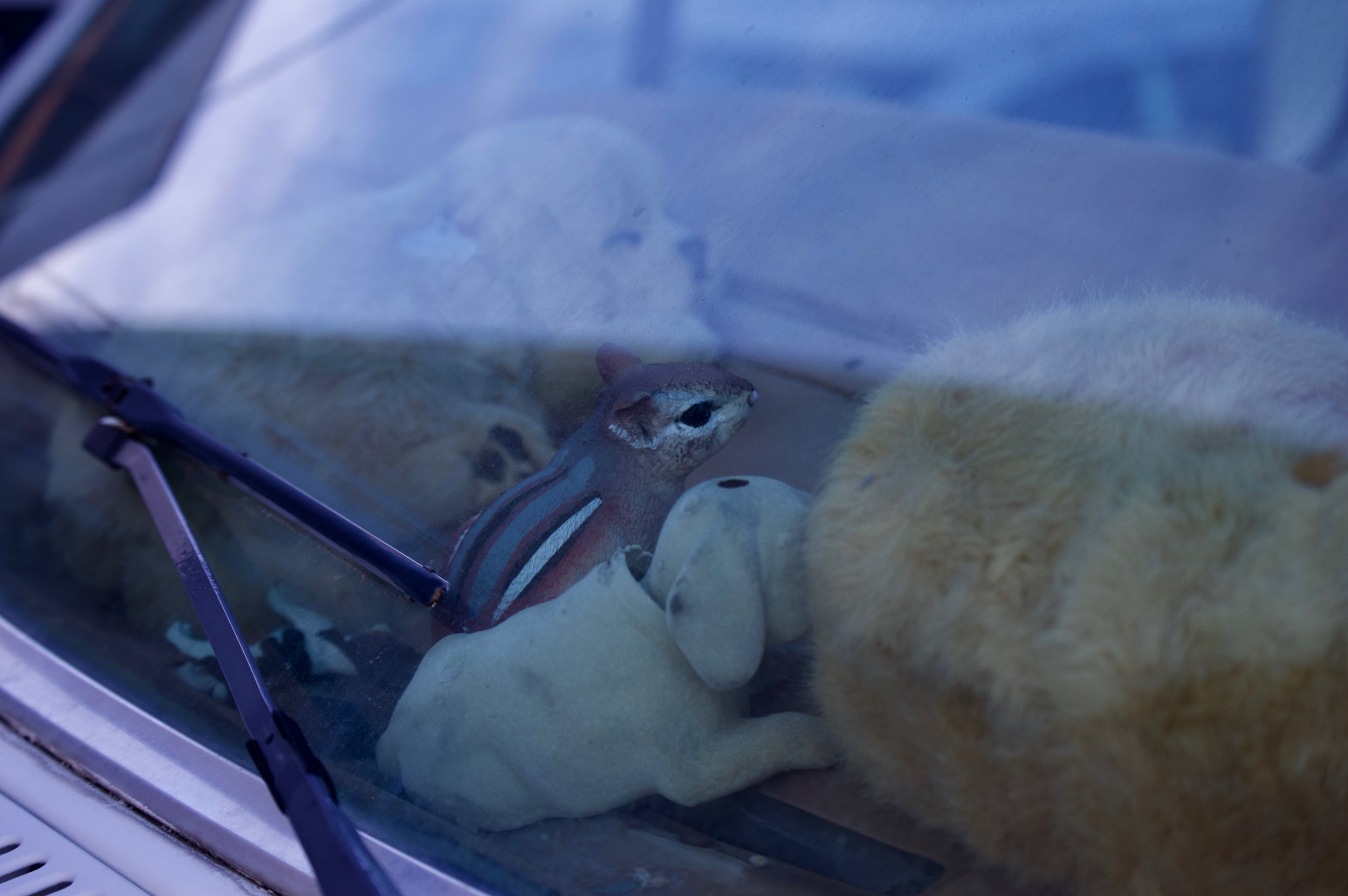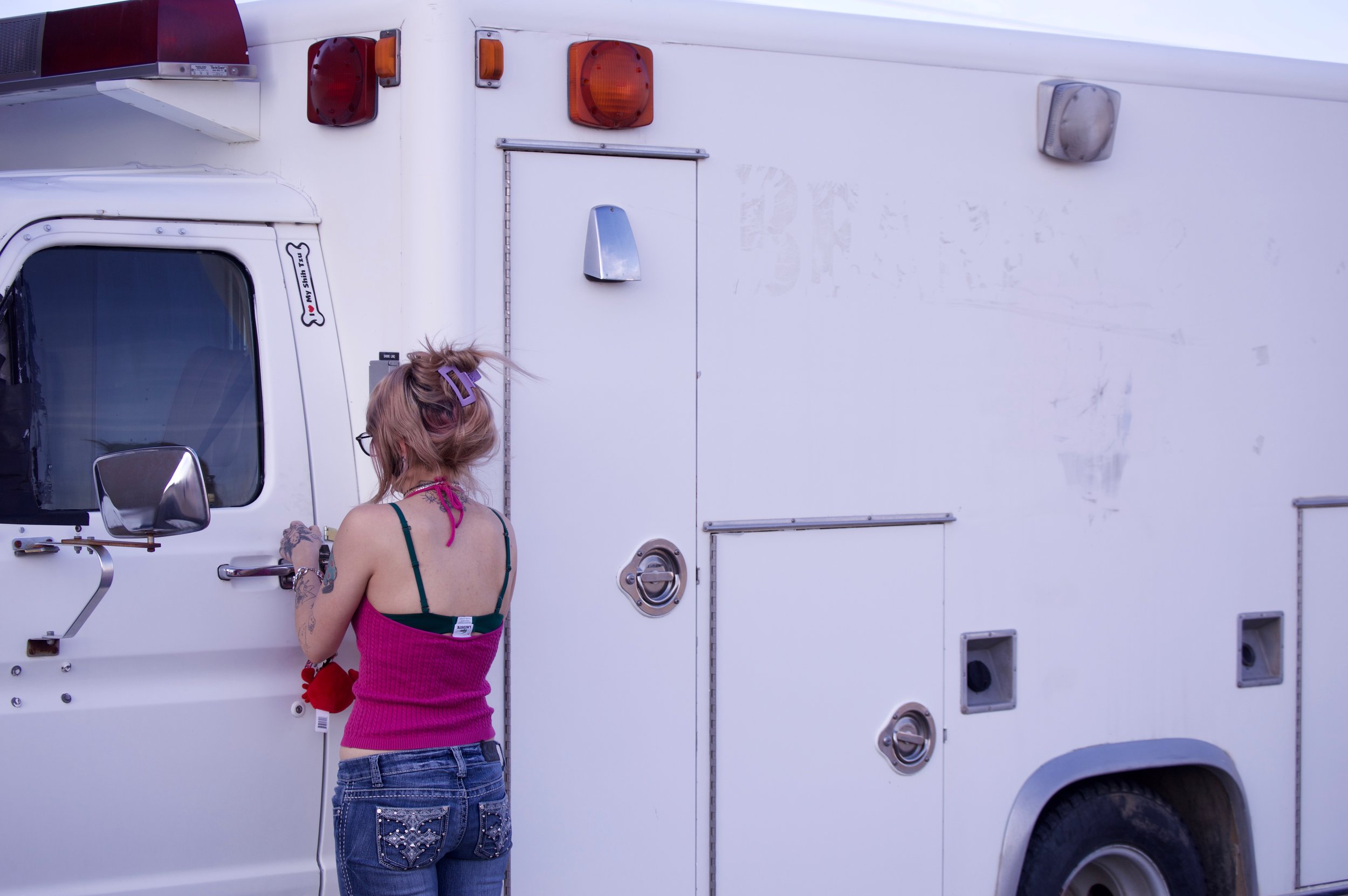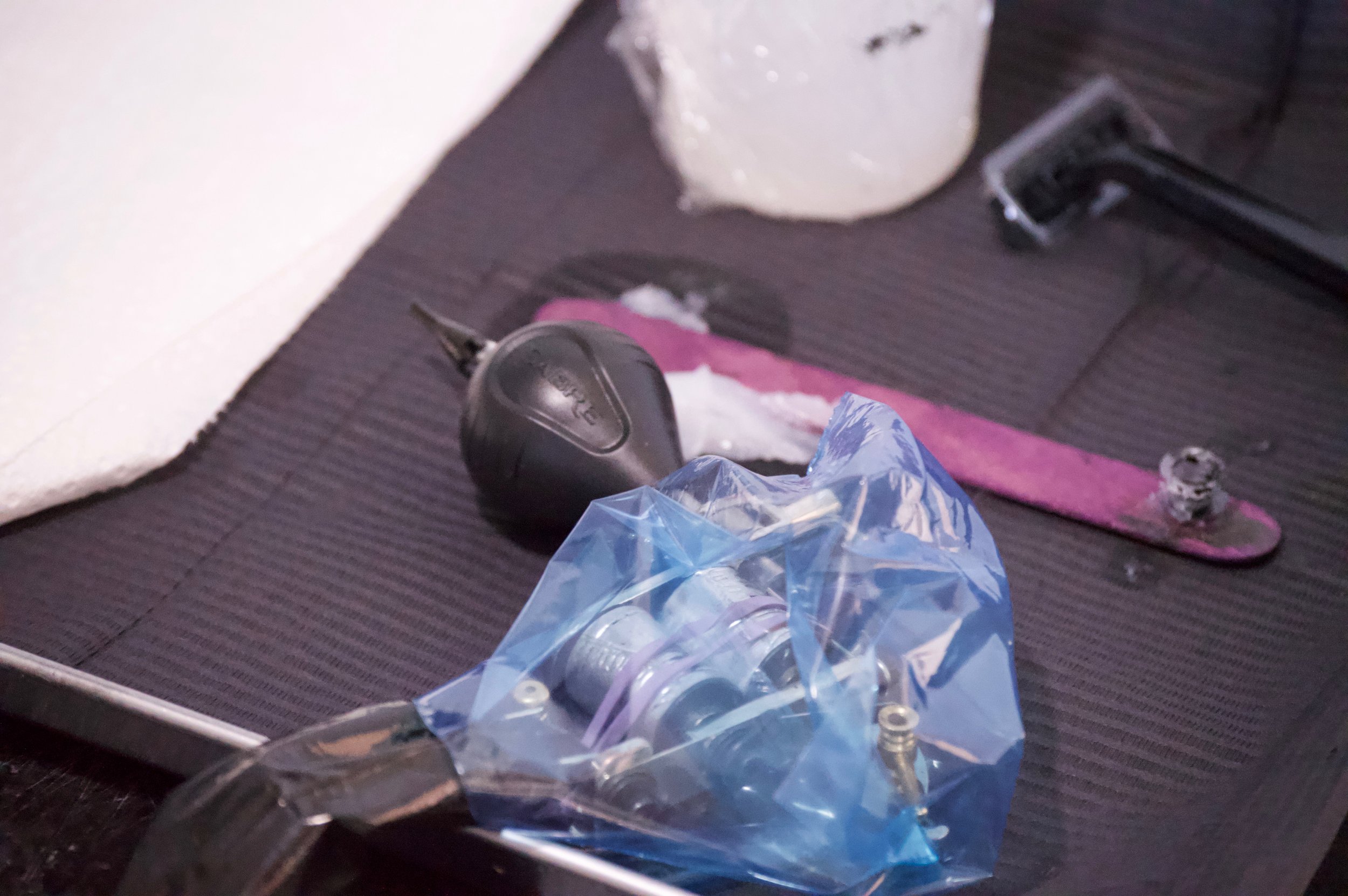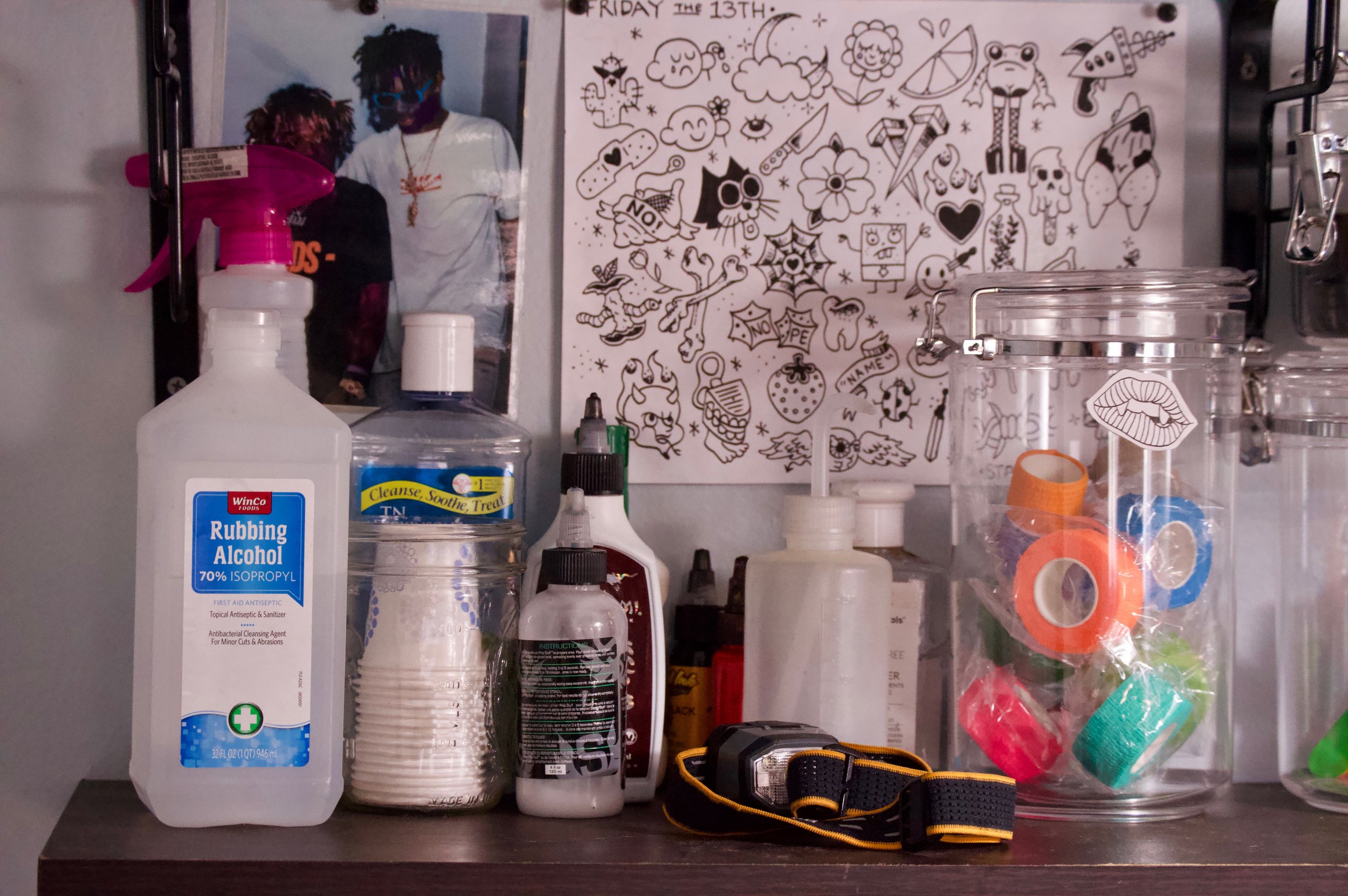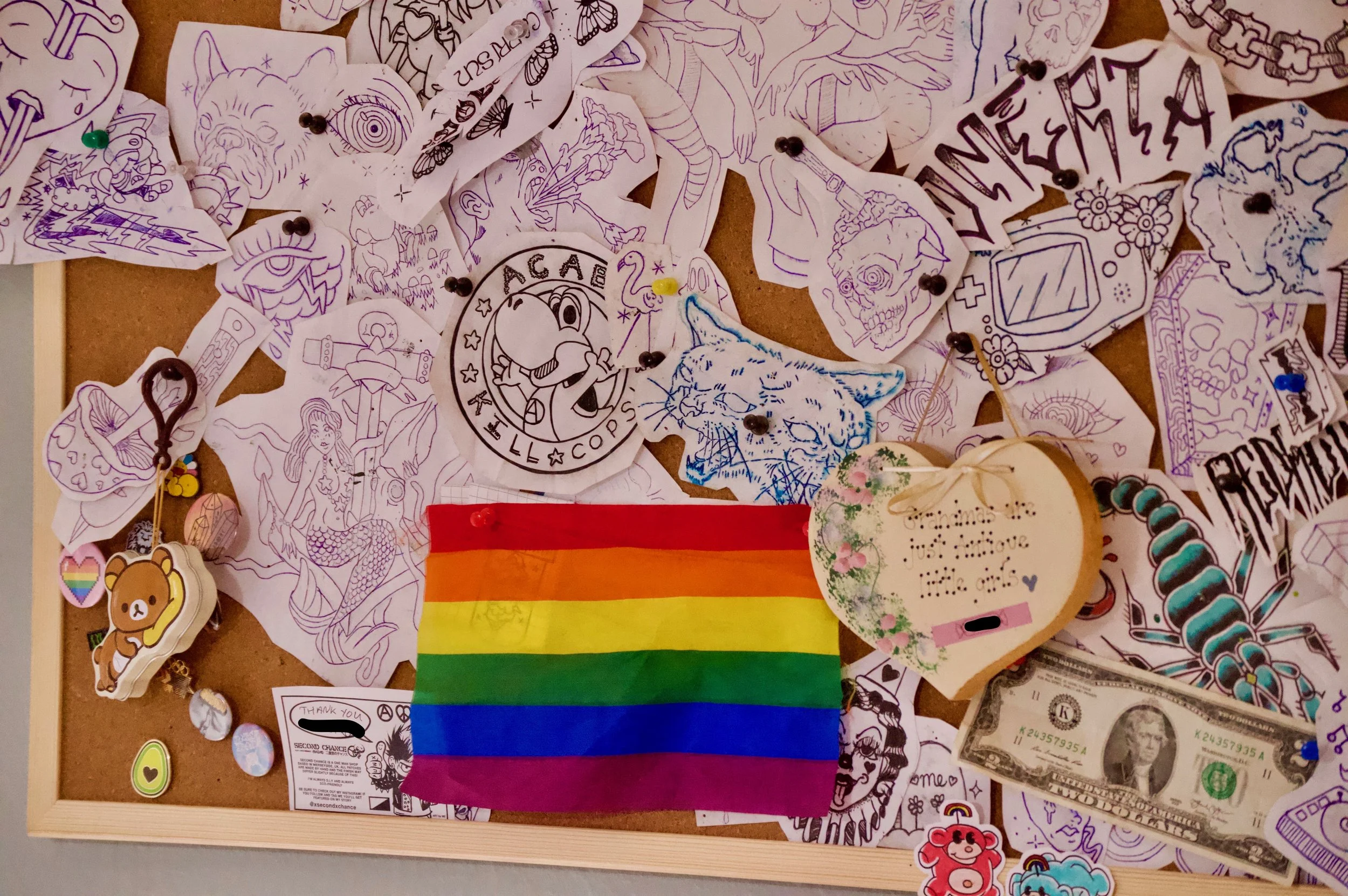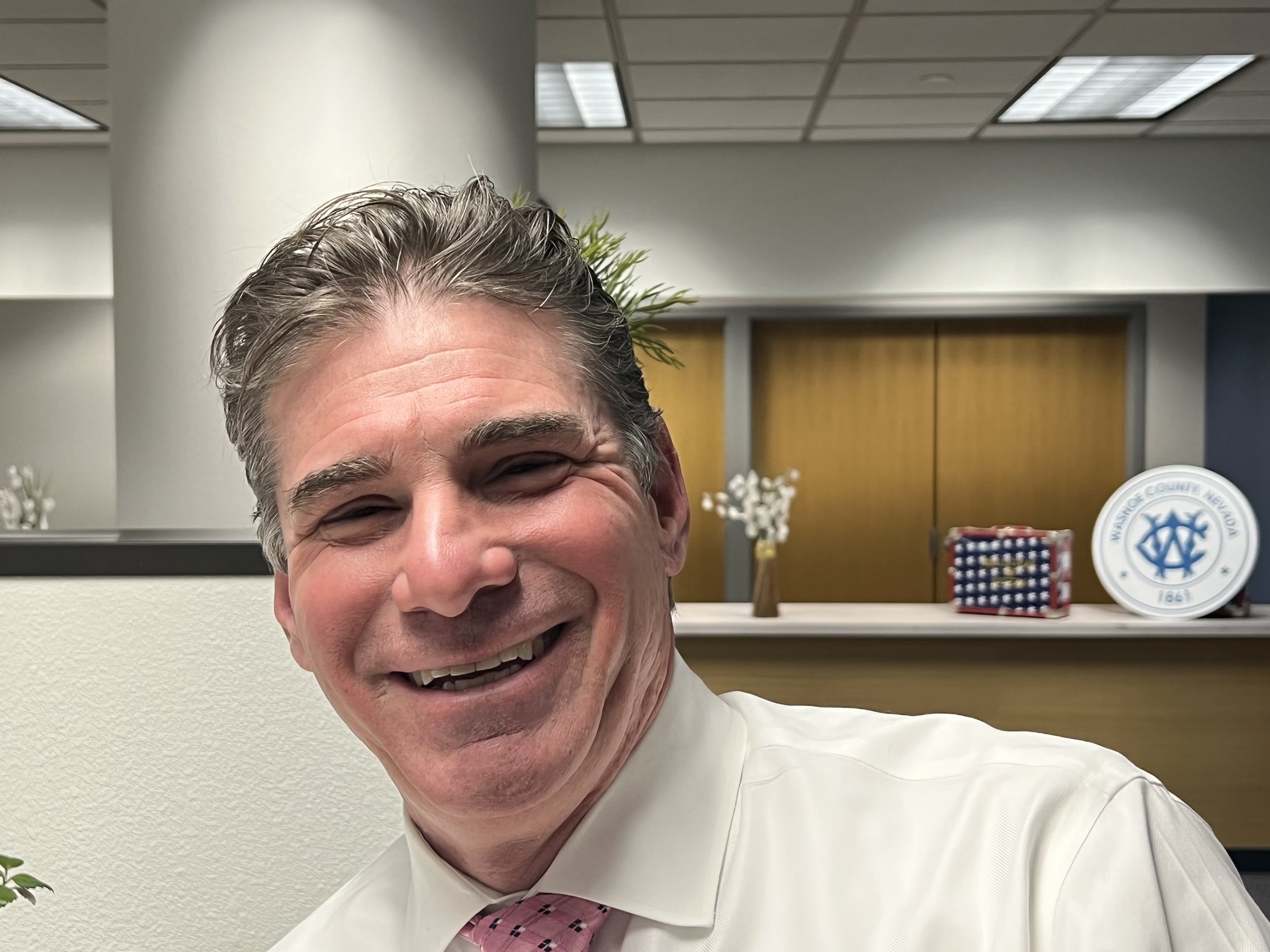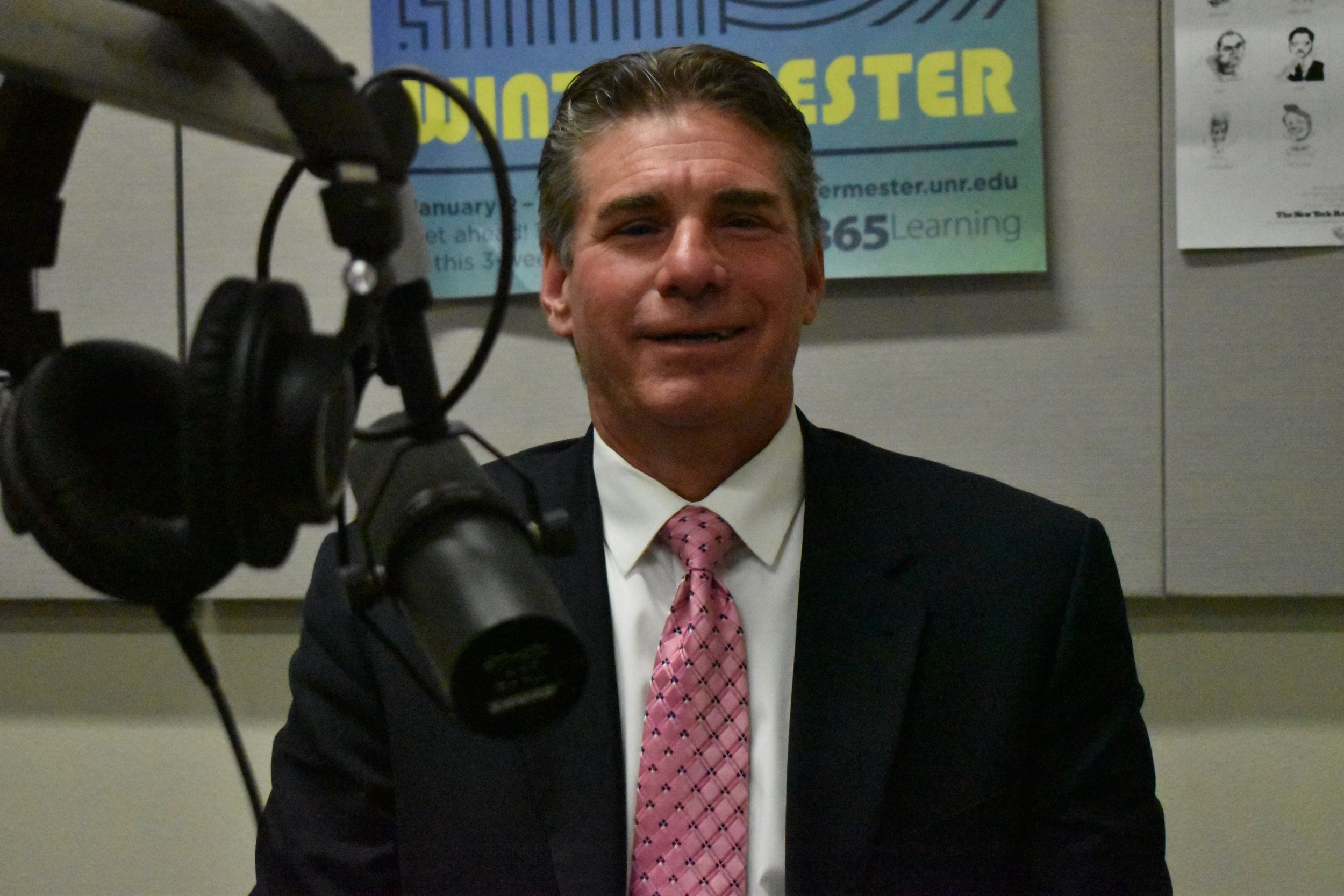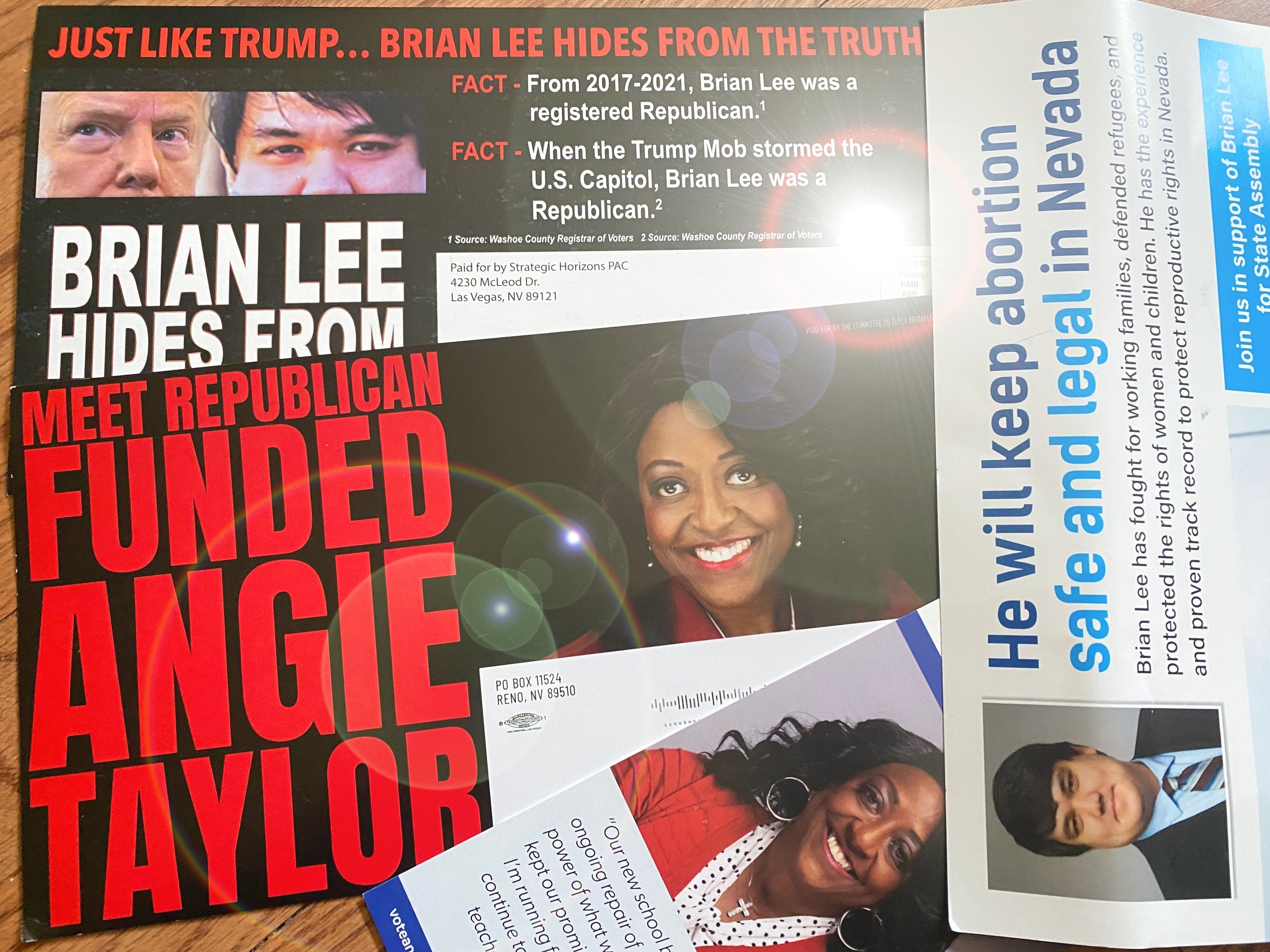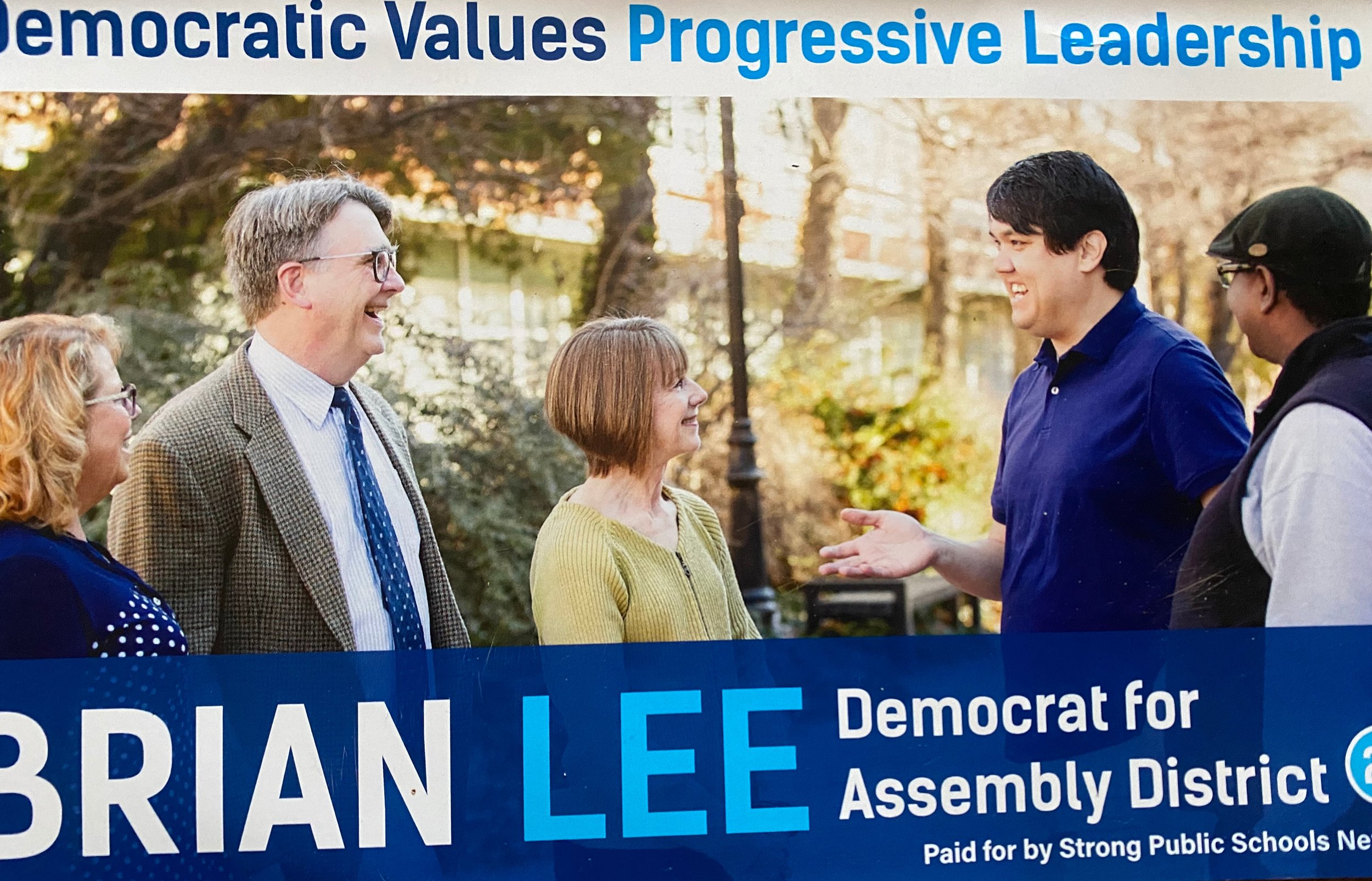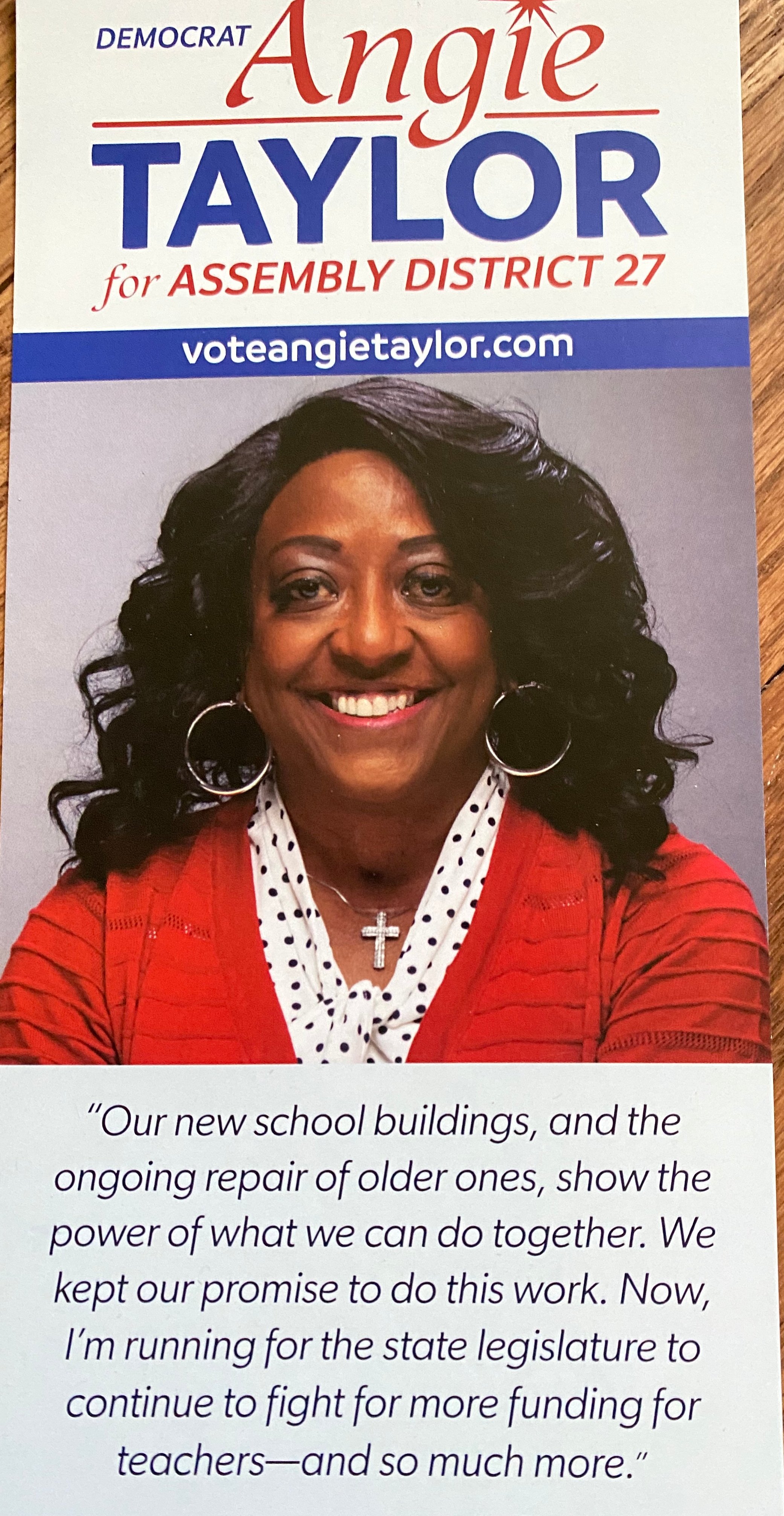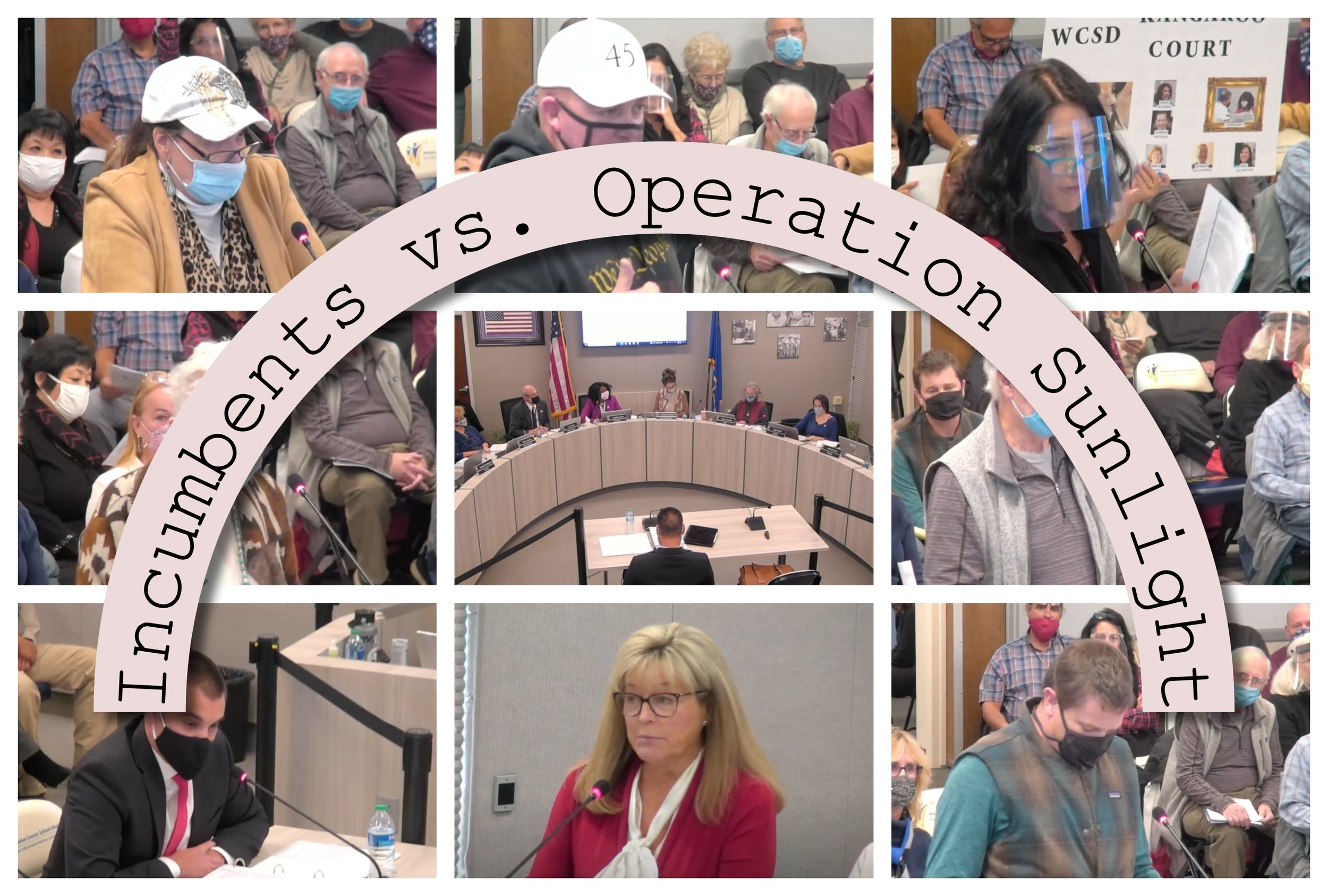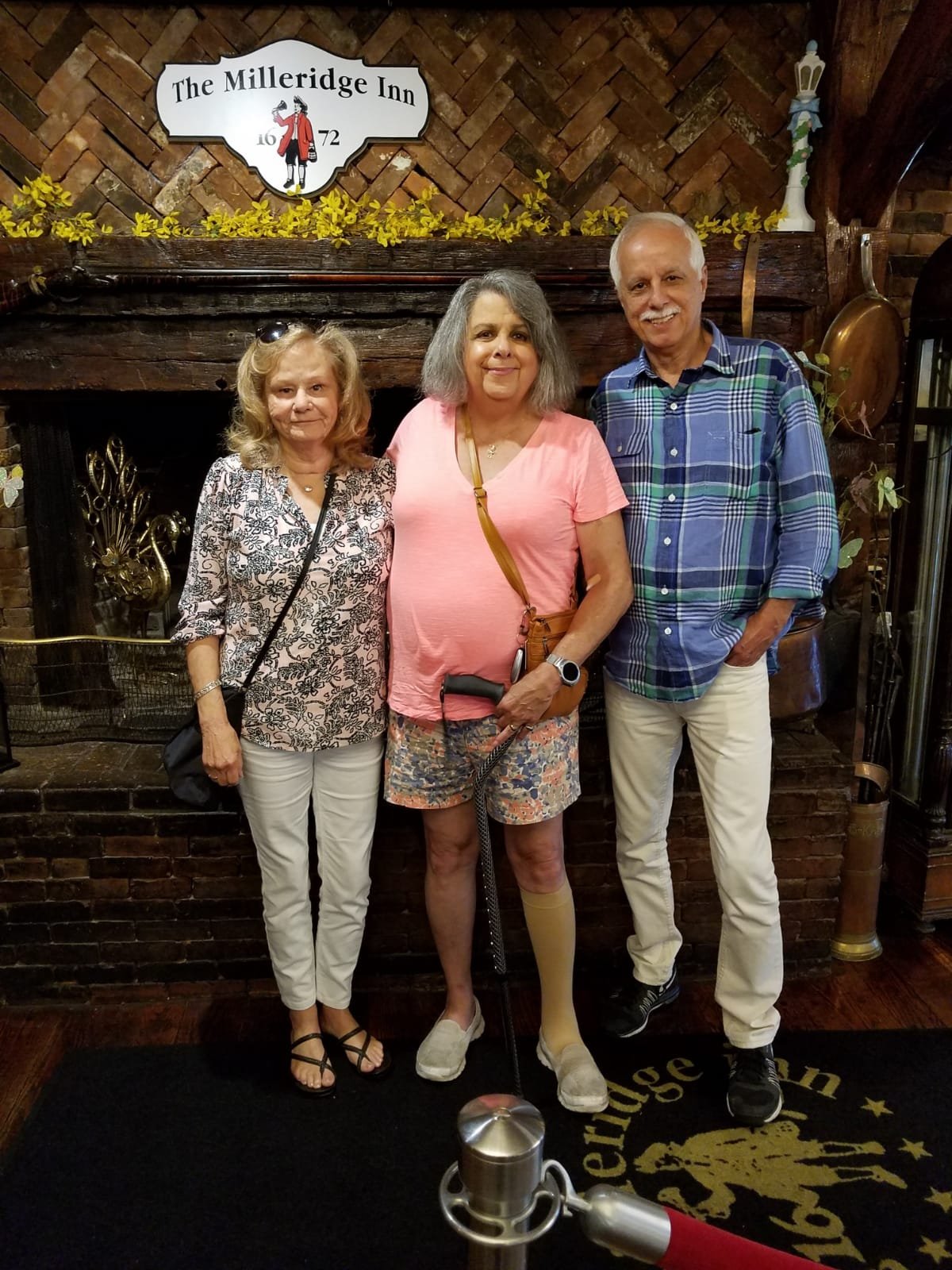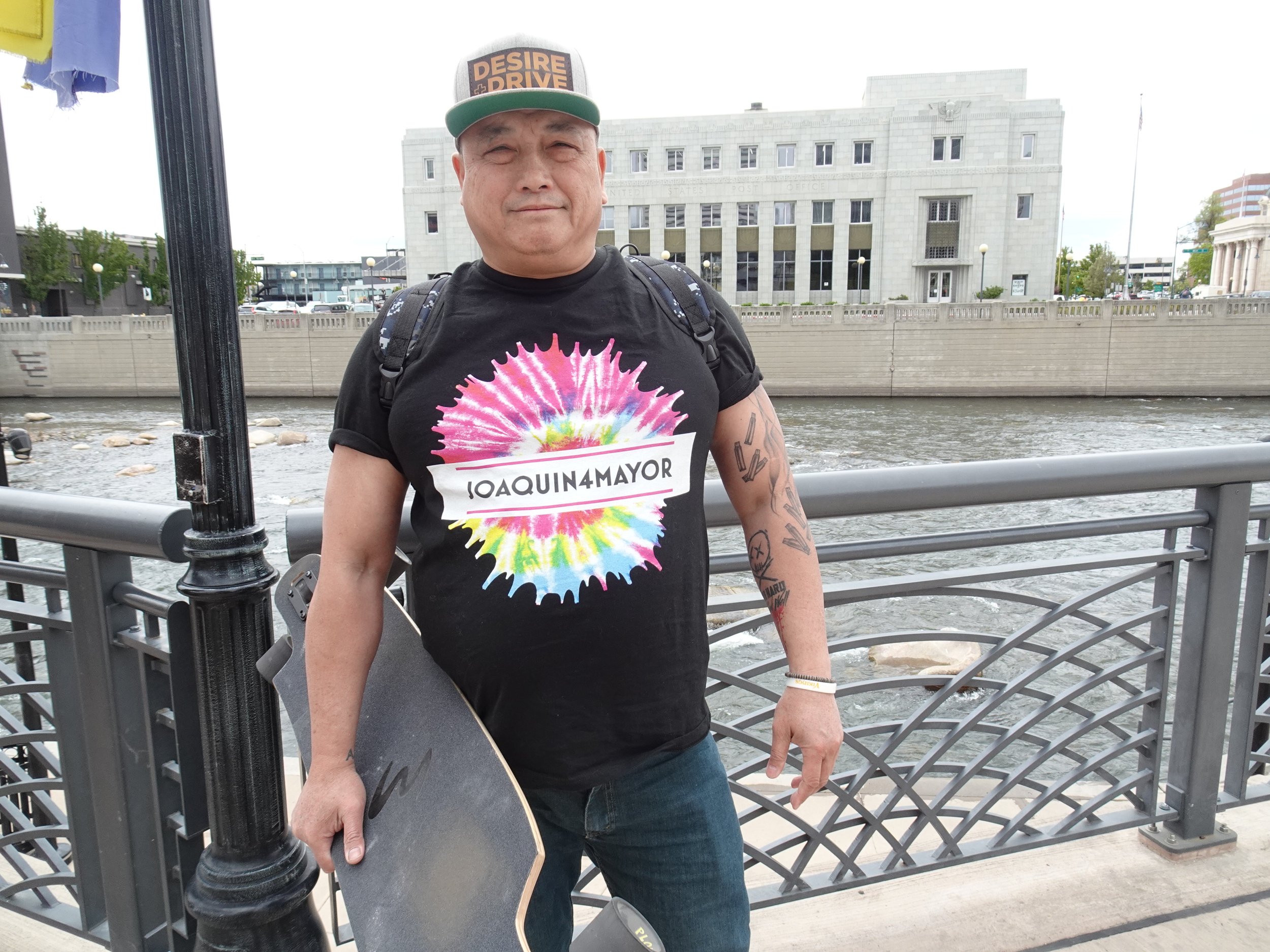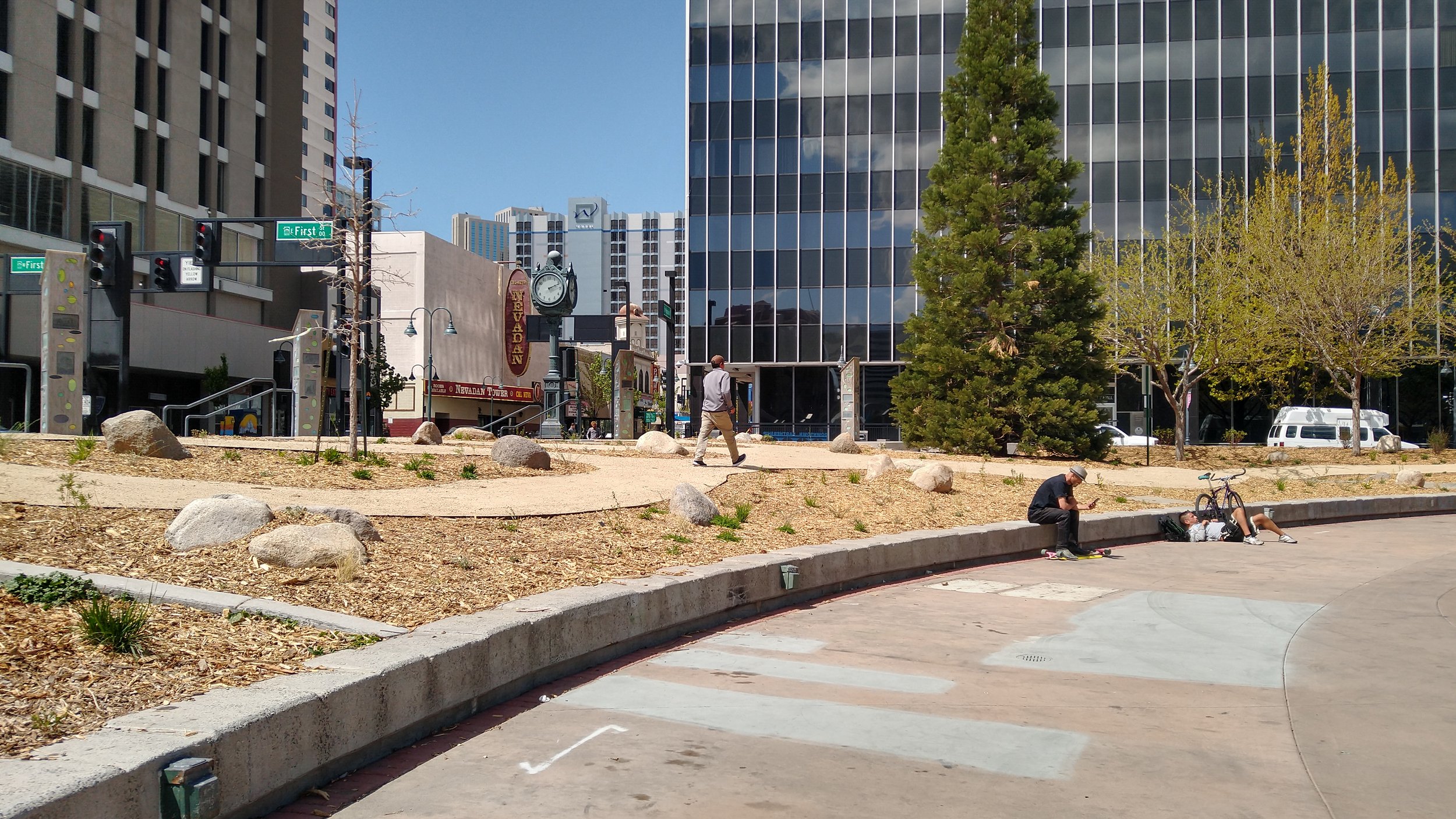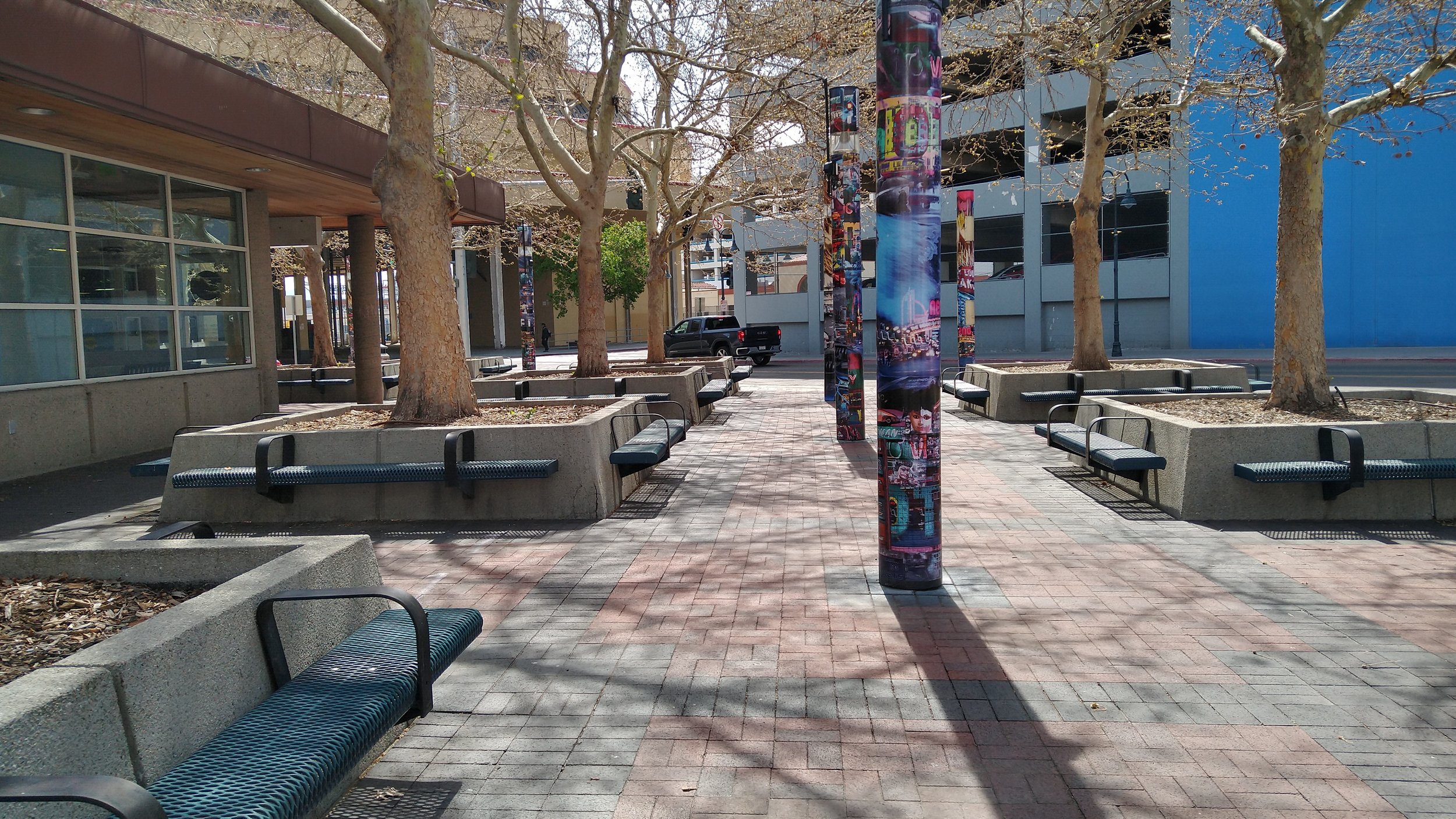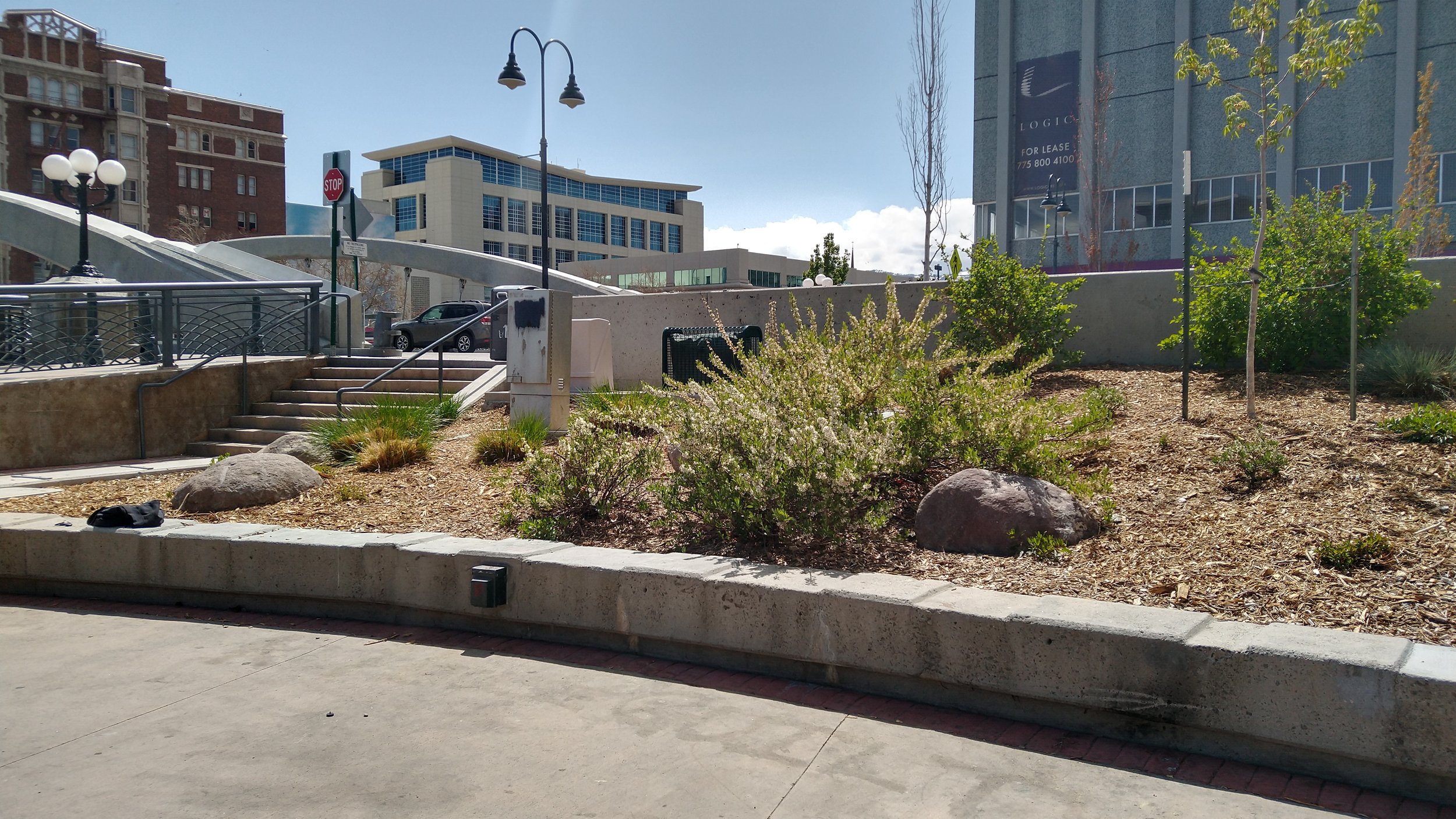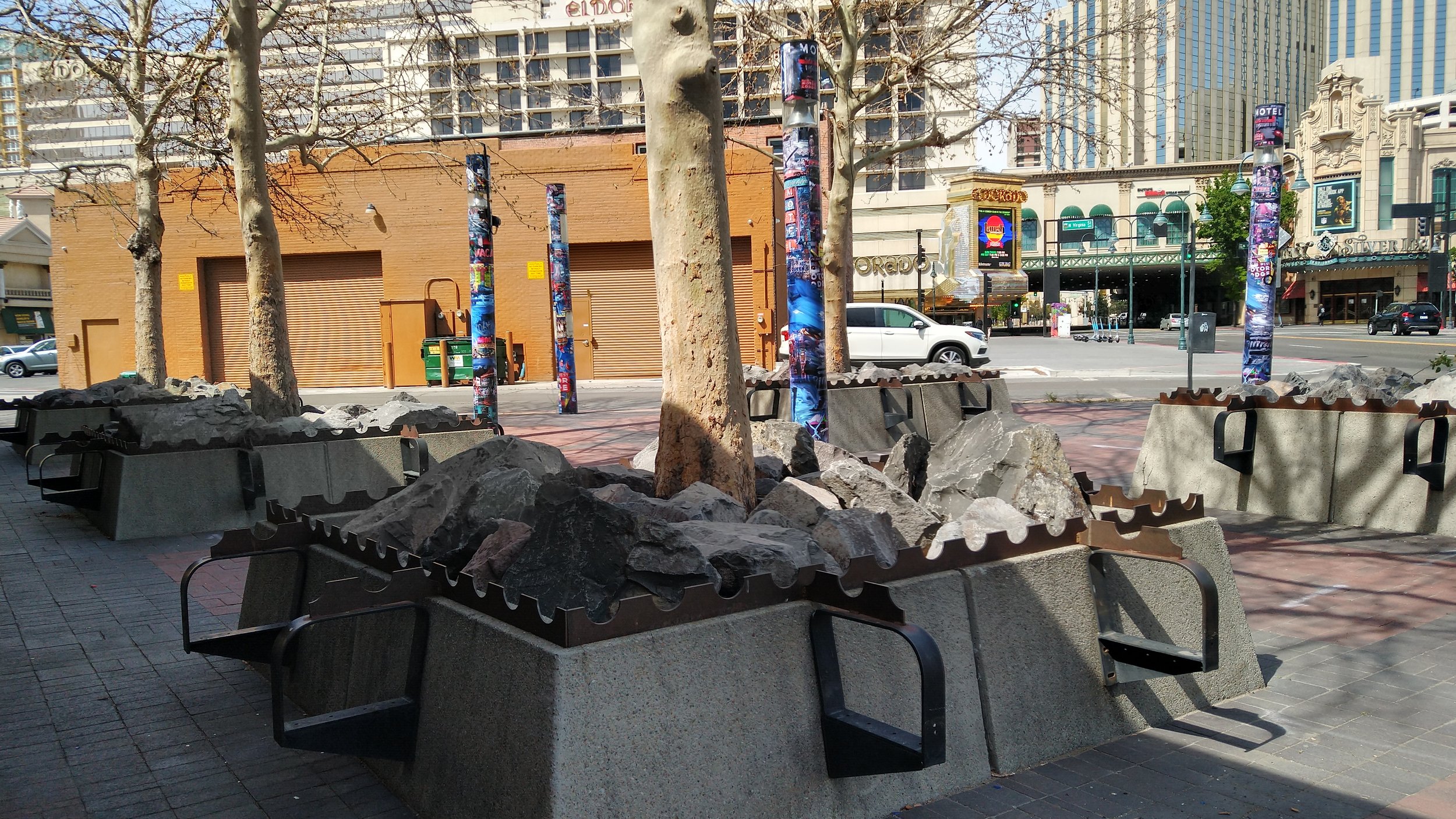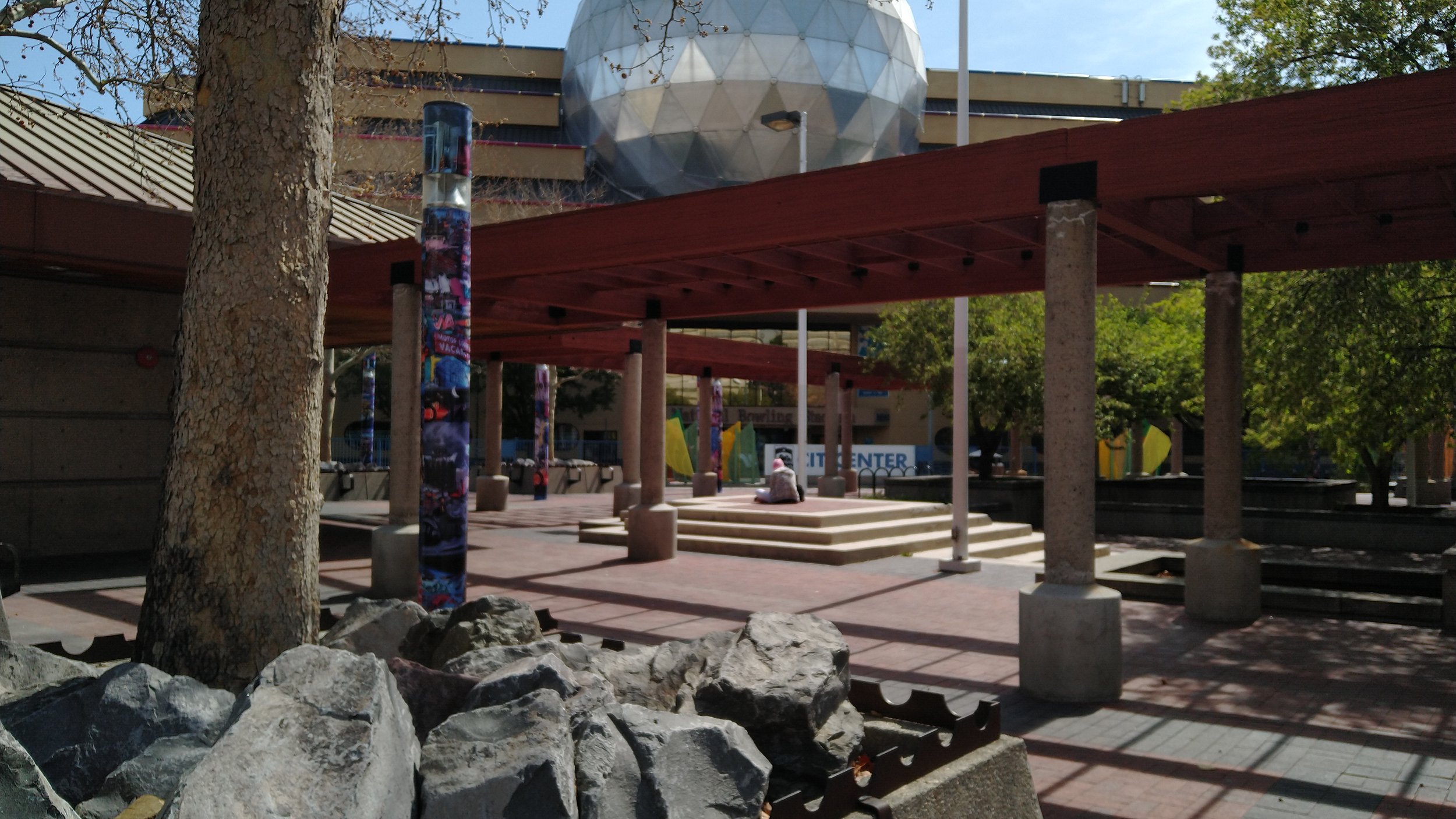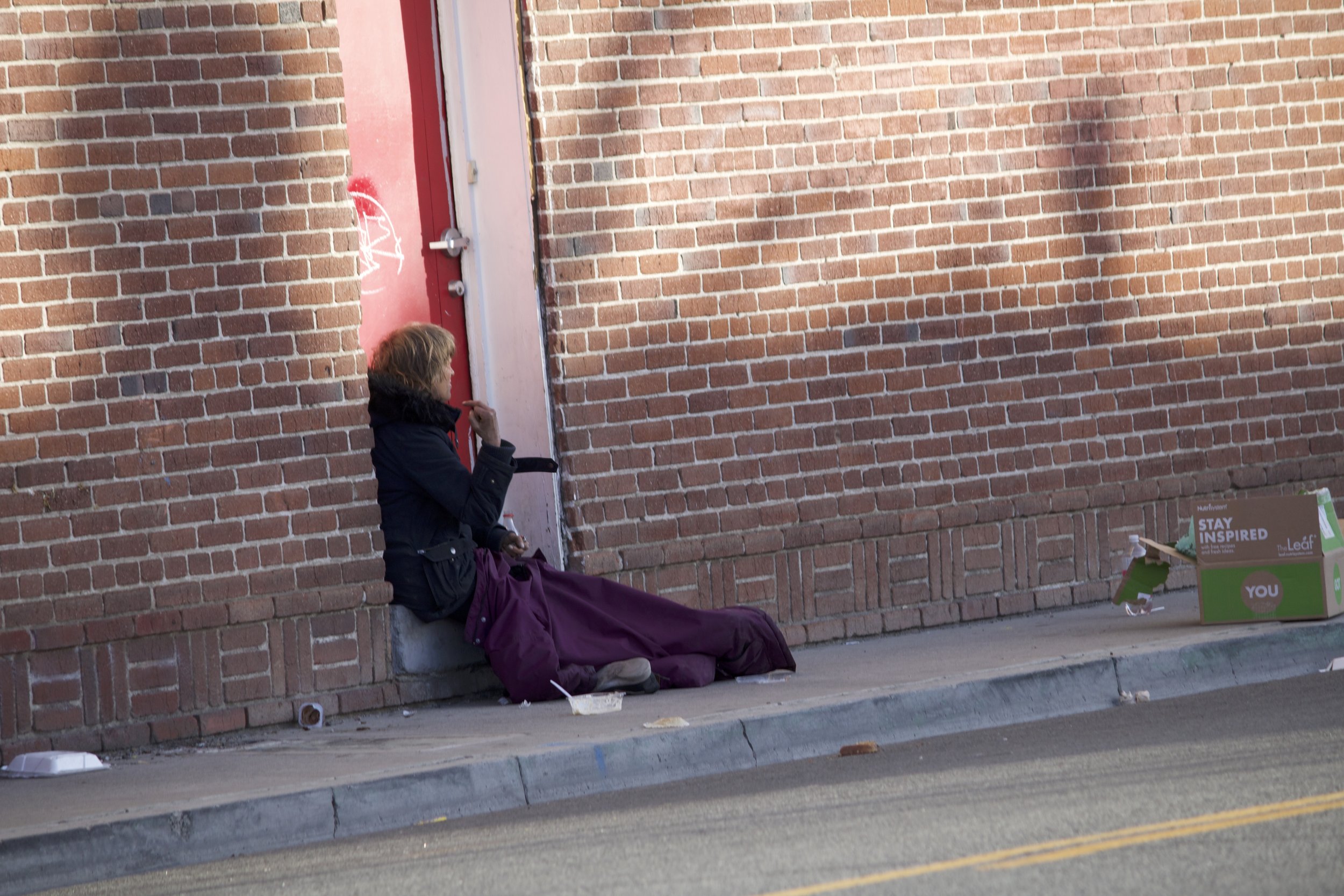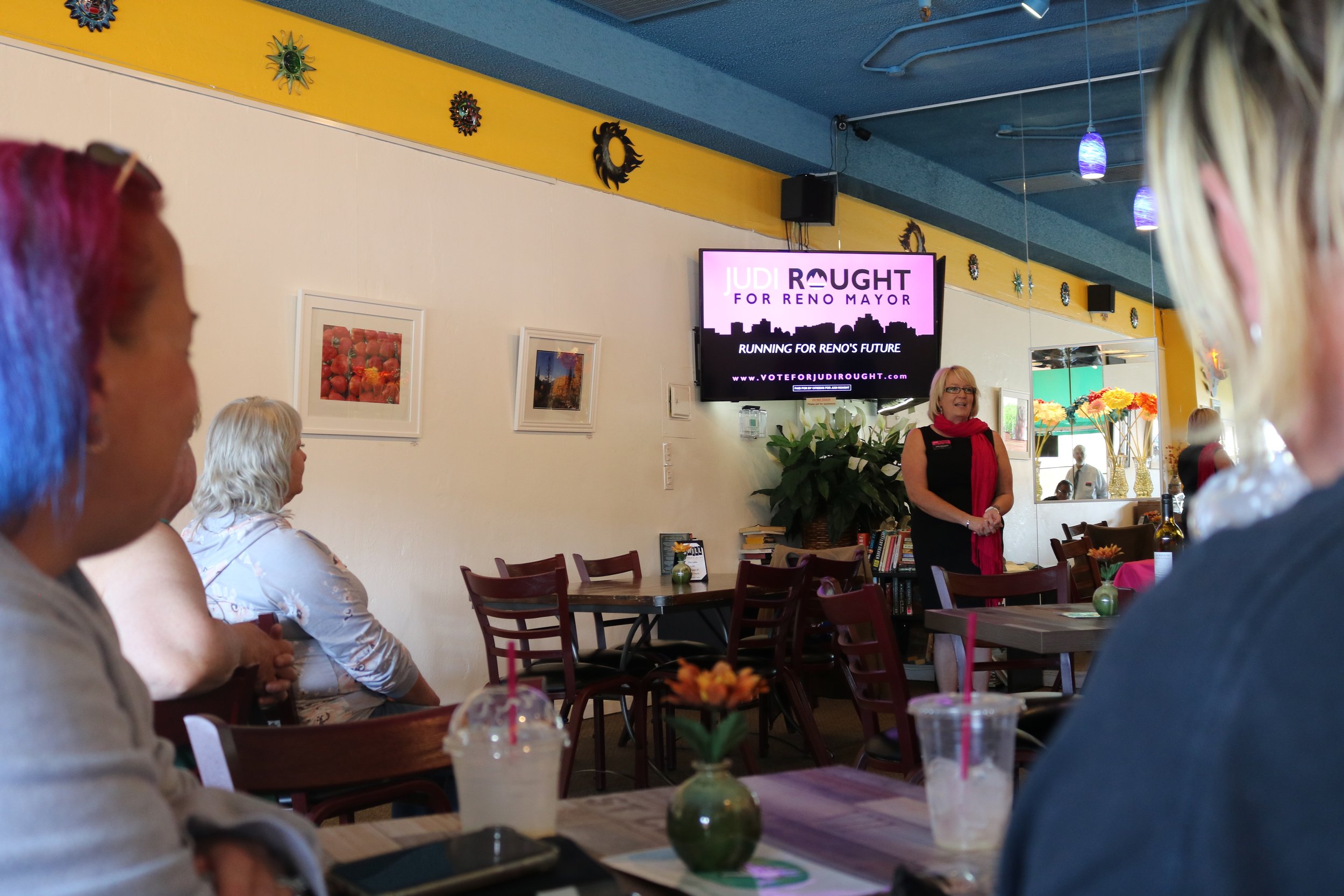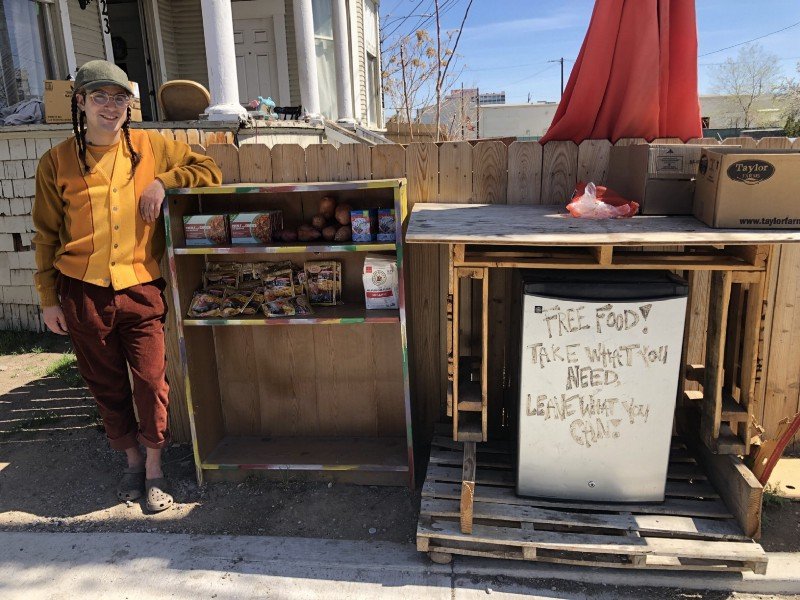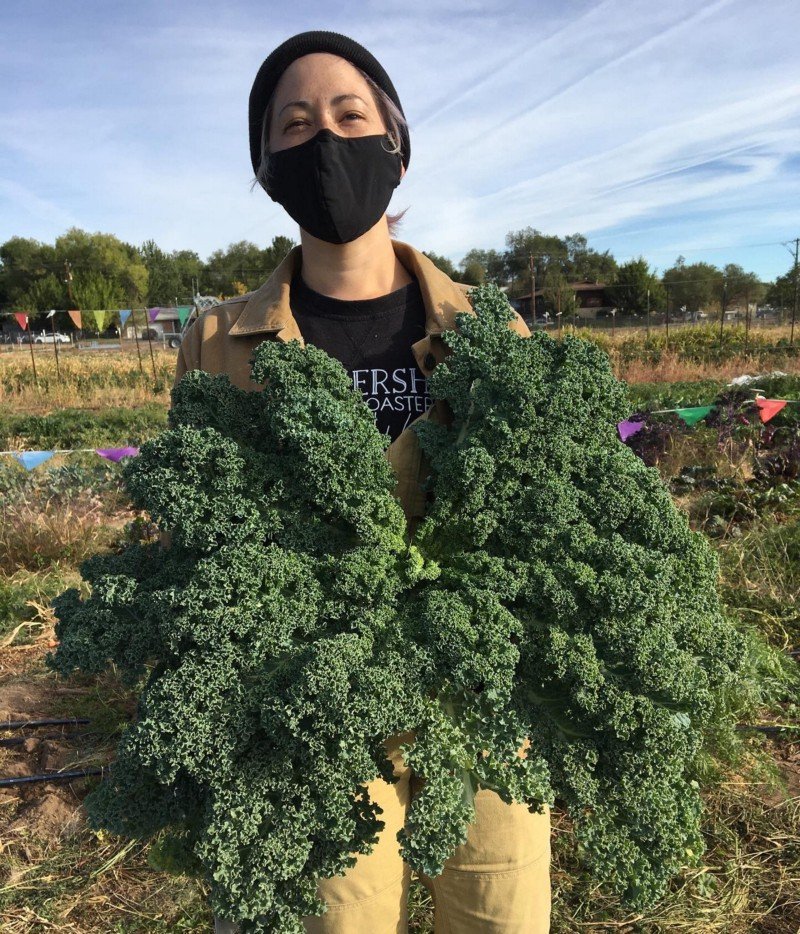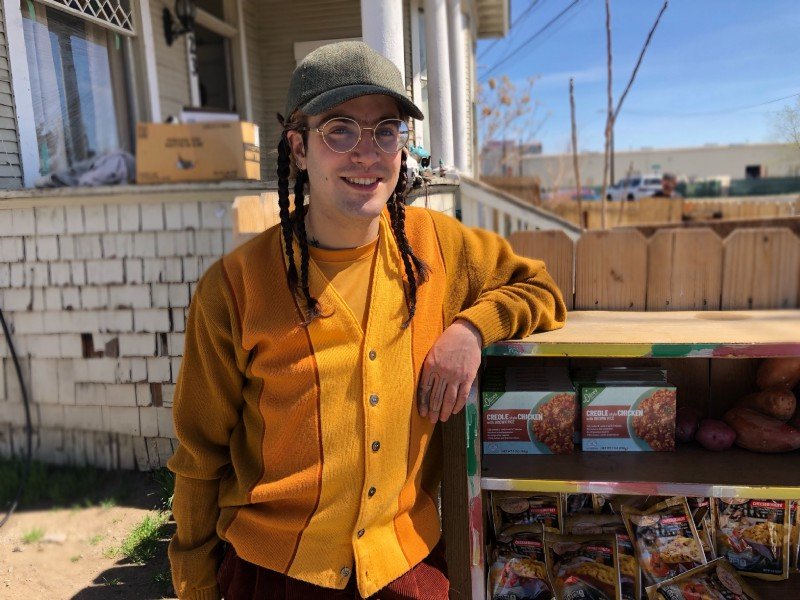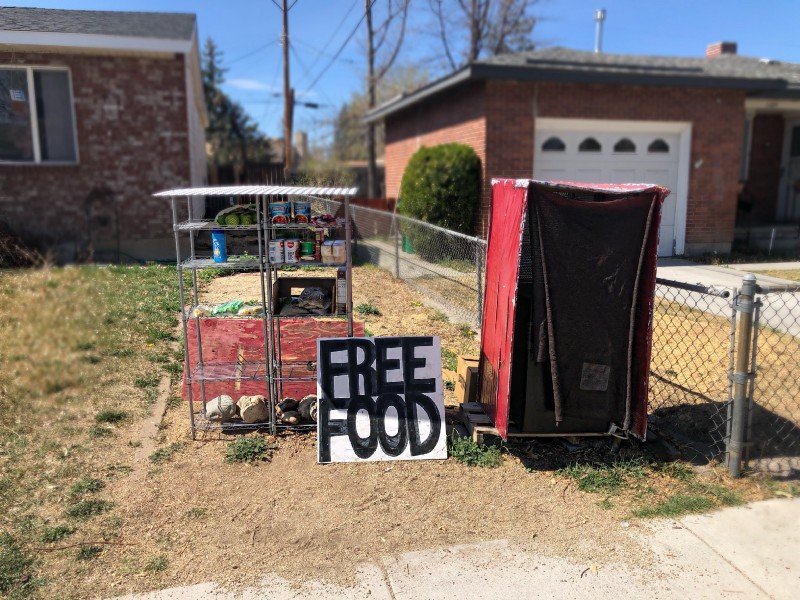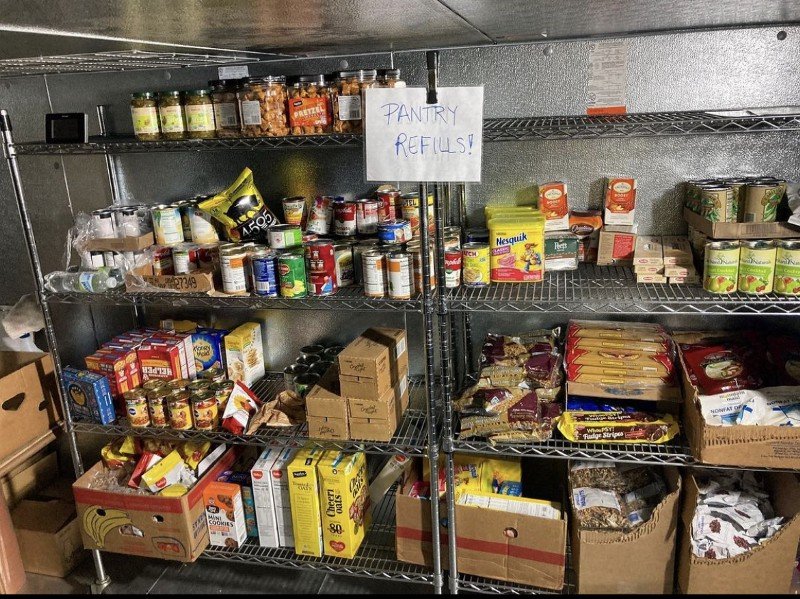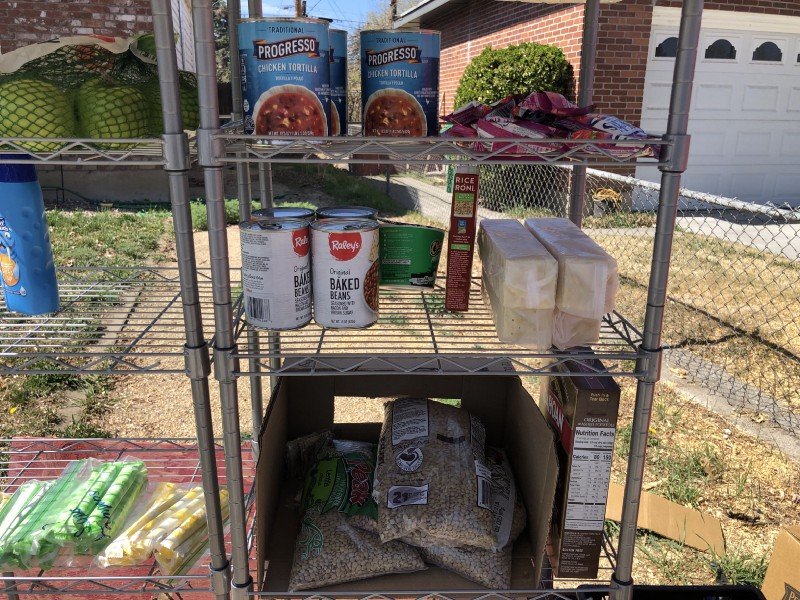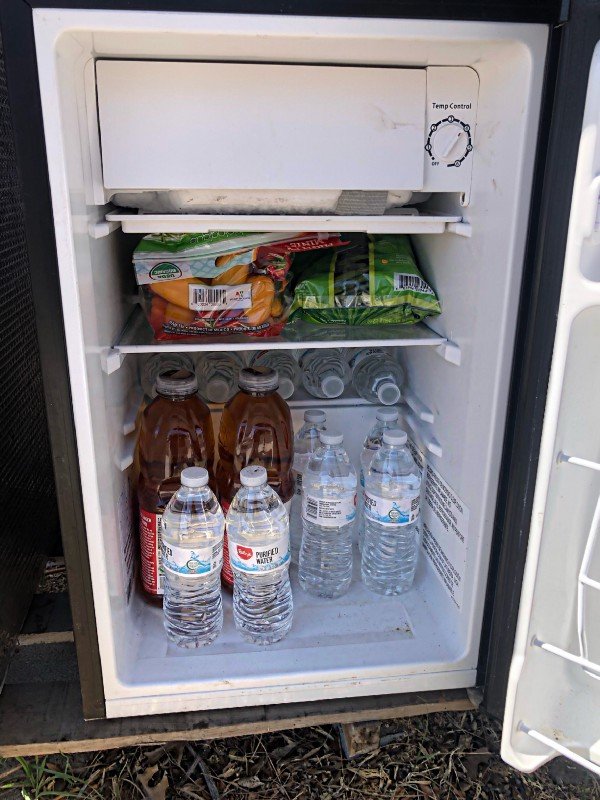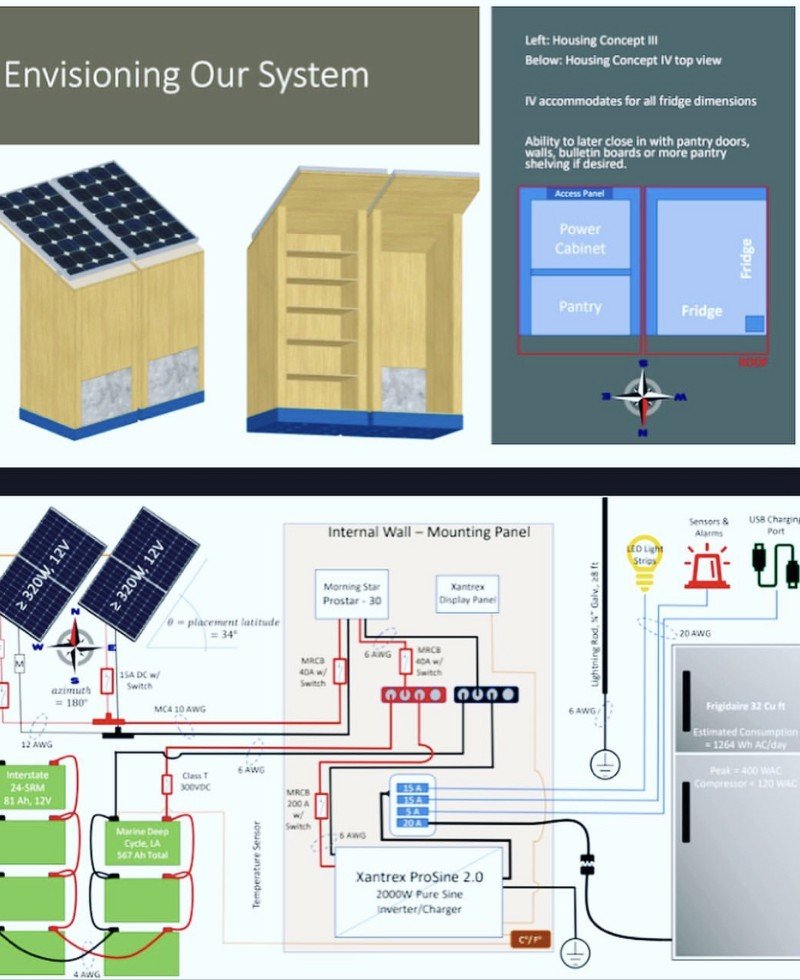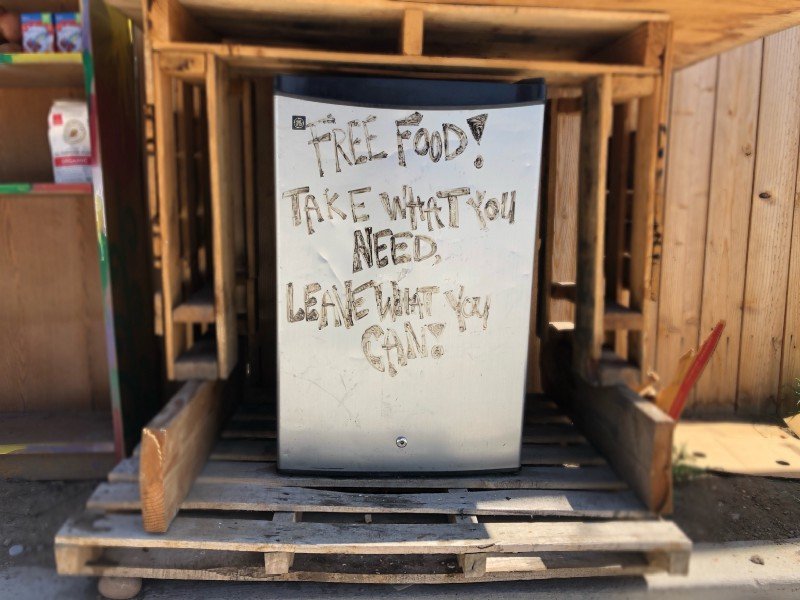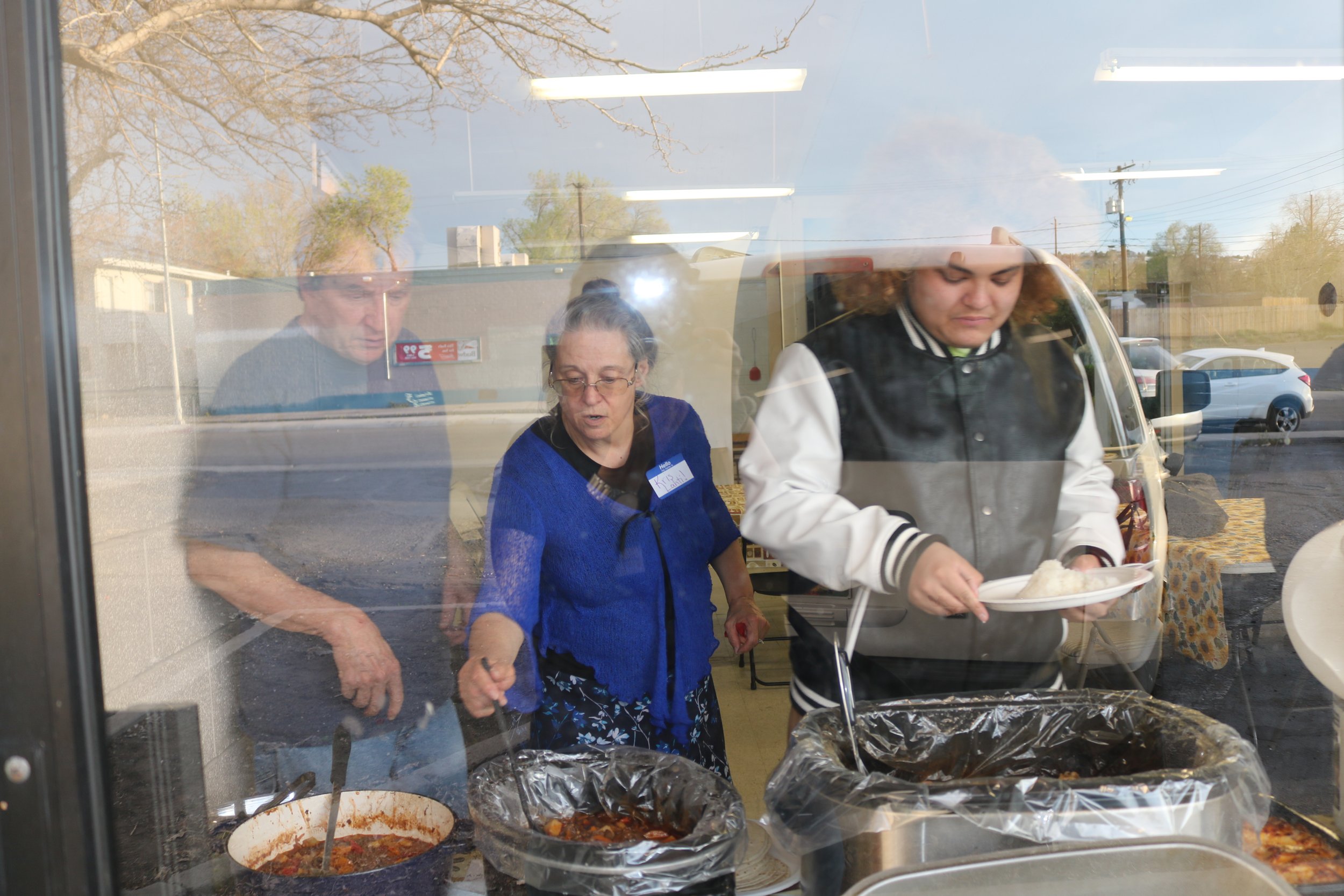A Student on Hold
While the Biggest Little Pantries are undoubtedly used by those who are unsheltered, just like with the issue of food insecurity, these pantries’ are indiscriminate and can be a constant in any member of the Reno community’s life.
A 29-year-old college student stood at the pantry, eyeing her options of macaroni and cheese or mashed potatoes for her dinner. She had a green Jansport backpack that she used as a vessel to hold the food; it was tattered at the bottom and the straps seemed to be near threads as they supported the weight of the bag. It was difficult finding her eyes, too, but for different reasons. Like magnets, her eyes remained glued to the drawstring of her hoodie that her fingers fiddled with throughout the interview.
Her hair was cut, cleaned, and groomed, her nails sporting a chipped but fashionable sky blue nail polish. She had sneakers riddled with grass stains that matched the embroidered flowers on the edge of her boot-cut jeans. She looked her young age, but her words resounded as though she had lived a lifetime.
She began her studies at the University of Nevada, Reno, about three and a half years ago, transferring to the university after earning her Associates degree at Truckee Meadows Community College. Studying Human Development and Family Studies, she says her studies had to be put on hold during the pandemic.
“I was honestly lucky to even still have my job,” she says, “I knew so many people who were already in pretty low situations that had to then lose their job on top of that… there’s really only so much one person can take.” The woman was working in food service until February of 2022, but has since moved on to an office job in order to make a more stable form of income.
She said that after undergoing a bout of COVID, she was backed up on bills and classwork after having to take several weeks off of school and work. “I needed more money to survive, and unfortunately, the progress of my degree had to be put on hold in order to do that. A lot of my income came from tips so my job really required me being present in order to really have a sustainable wage. Having to catch up from that took a long time, and, obviously,” she gestured to the box of mac n’ cheese in her hand, “ I’m still kind [of] catching up,”
Despite the pause in her studies, the woman stressed the importance of completing her degree, “I’m not going to let the loss and tragedy of the last two years erase all the work I’ve done. I’m just as deserving of that recognition as anyone else.”
As the woman shared her experiences, her voice was quiet but didn’t falter. Her style and clothing were youthful, but her words were sensible and articulate. She told of her past with confidence that comes with remaining grounded with the present.
“I am so much more than my income status or the size of my home. I am a living, breathing, person and if the whole community had an ounce of the compassion that’s necessary to donate food, then maybe we wouldn’t have so many people struggling in own neighborhoods.”
The woman, who now had tears welled up in her eyes, finished her last statement with just as much poise as the start of the interview. She was fierce as she said, “I shouldn’t have to prove why I’m deserving of the compassion and love that lets humans and neighborhoods operate. I will give back when I have the means to do so. In the meantime, I don’t think anyone should hold it against any living human for relying on their fellow humans.”
“That’s just hurting your own community.”

